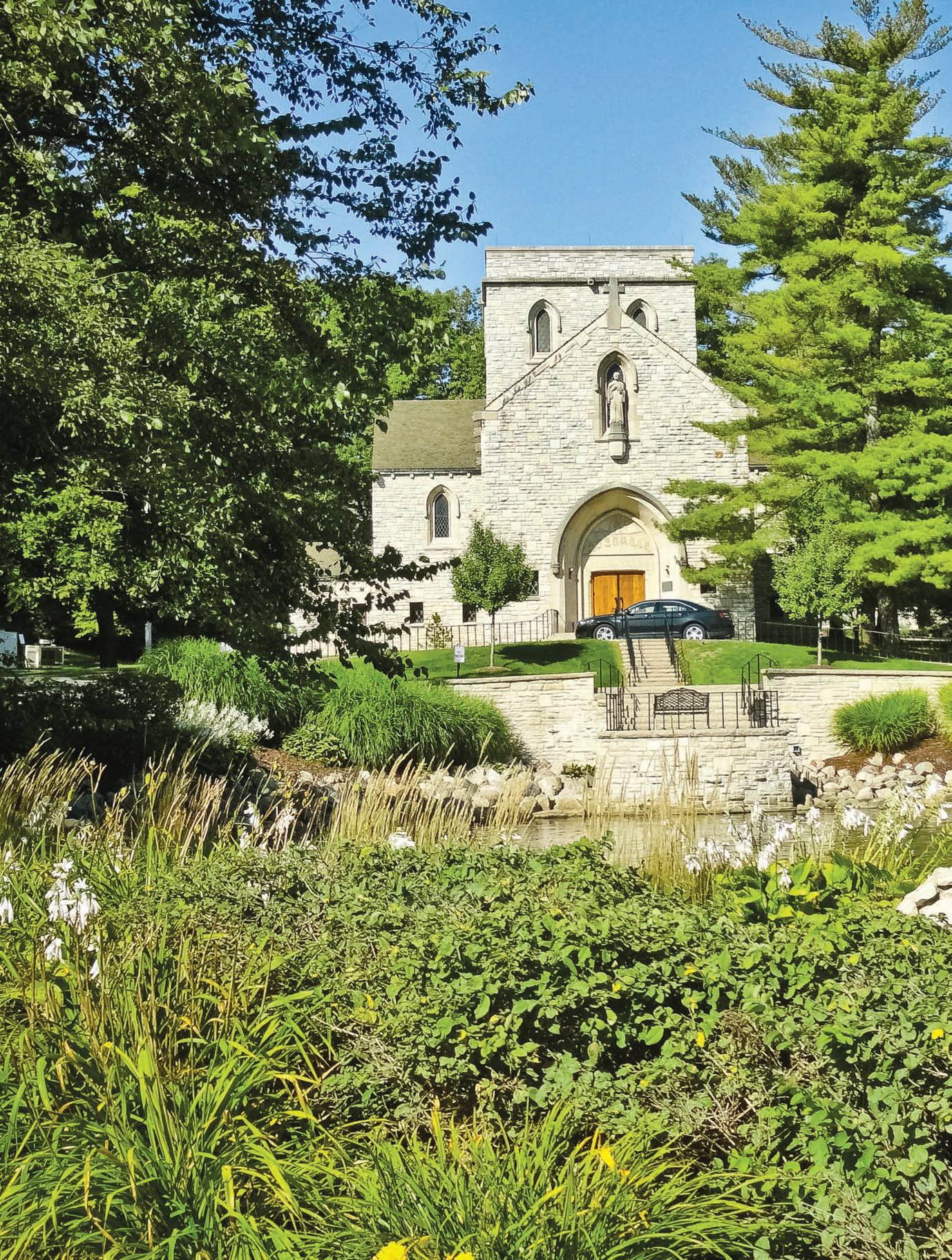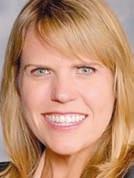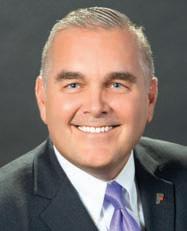




















Though COVID case numbers continue to fluctuate, the days of children staying home and attempting to learn over Zoom for months on end may finally be in our rear view mirrors. But what does a return to “normal” even mean in today's learning environment? And what was the impact of the pandemic on the children.

A recap of select categories of crime occurring in the past month in Birmingham, Bloomfield Township and Bloomfield Hills, presented in map format.
Bloomfield Township Supervisor race preview; push to keep Peters at helm of Senate committee; Ronna McDaniel fights to retain RNC post; list growing for Michigan GOP chairperson hopefuls; county Dems vote themselves a whopping raise; plus more.
Host under fire for falsehoods; township preliminary budget; 48th District Court budget set; planners send outdoor dining rules to commission; police accreditation underway; construction paused for RH plan review; Clemence retiring; plus more.
Photo by Maglara | Dreamstime









The Community House President & CEO, William D. Seklar, provides readers with a look at the past 100 years of this iconic community organization and what the future holds. 82




Gigi Nichols provides readers with quick takes on what is happening in the world of food and drink in the metro area.








Our opinions on the problems created by Birmingham city commissioner Brad Host and how Democrats on the county board violated public trust be granting themselves a hefty raise.





bring a special commitment to the



effort, reinvesting in the local communities and working to make sure the Birmingham/Bloomfield area reaches its highest potential. Our mission dictates that we strive each month to provide a solid news and advertising product that local residents look forward to reading. Our goal is to build a community of informed citizens through the efforts of our passionate team. We are innovators producing products that go well beyond what others offer.
Mailed monthly at no charge to most homes in Birmingham, Bloomfield Township and Bloomfield Hills. Additional free copies distributed at high foot-traffic locations in Birmingham/Bloomfield. For those not receiving a free mail copy, paid subscriptions are available. To secure a paid subscription, go to our website (downtownpublications.com) and click on “subscriptions” in the top index and place your order or scan the QR Code here.


We welcome feedback on both our publication and general issues of concern in the Birmingham/Bloomfield community. Opinions can be sent via e-mail to news@downtownpublications.com or mailed to Downtown Publications, PO Box 1630 Birmingham MI 48012-1630. If you are using the mail option, you must include a phone number for verification purposes.


590 Riverside - Birmingham - $399,000
One of 2 vacant sites remaining in Riverside Placeexclusive development of 8 detached condos steps from downtown Birmingham. Design and build your dream home.

699 Charing Ct - Rochester Hills - $309,900

Beautiful end-unit 2 bedroom plus loft private entrance ranch condo in Barclay. Updated eat-in kitchen, open living and dining room with fireplace and cathedral ceilings. Finished basement.

4047 Albert - Royal Oak - $249,900



Great location for this 3 bedroom, 1.1 bath brick ranch two blocks from Beaumont. Nice layout with large fully finished lower level. Large private fenced yard.

email newsletter at downtownpublications.com .
up for our weekly update
public safety stories?
Sign
Want weekly updates on
approximate.
Placement of codes is
December 22 , 2022.
Bloomfield Hills through
officials in Birmingham, Bloomfield Township and
categories by police
reported under select
These are the crimes
Vandalism Drug offenses Arson Map key
Sexual assault Assault Murder/Homicide Robbery Breaking/entering Larceny Vehicle theft Larceny from vehicle

The perils of driving while black (DWB) have been a concern of mine for some years. Though the bad old days may be over when Black drivers were stopped because they were driving really nice cars and must therefore be drug dealers, I still worry when I see a police car stop a Black driver on a Birmingham street.
Kevin Elliott’s excellent analysis of data demonstrating that Black citizens are stopped out of proportion to their percentage in the population (By the Numbers: Police Traffic Stops/December) reminds us that this disheartening practice is still going on.
What can a white person who cares about the quality of life and the safety for Black people in the Birmingham area do? The example of the teenager who stood witness by making a video of George Floyd’s murder gives me an idea: when we see a Black driver pulled over by a police car, let’s get out of our car and video what is going on. Yes, the police officer is going to be furious, but we might add an extra layer of protection for the Black driver and perhaps a disincentive against unfair racial profiling.
Dr. Annis Pratt Birmingham

Thanks for thoroughly researched articles (From the Publisher) pertinent to Birmingham. I may not entirely agree with all David Hohendorf’s opinion pieces but I appreciate his willingness to explore important issues. Please continue.
Name Withheld On Request Birmingham
The online story "Host promotes false narrative on 2040 Plan" (in print this issue) reflects the political zeitgeist of our time.
Either he doesn't realize his interpretation of the 2040 plan is at best an exaggeration or he is consciously or unconsciously manipulating the facts to suit his agenda. Either way his stance reflects an almost mystical view of Birmingham where there are two cities.
One city consists of residents and the other of the businesses. According to him, the former are good and the latter bad. As a former member of Birmingham Citizens for Responsible Government, I also campaigned to h elp elect Host, I parted ways with

Although
Opinions can be sent via e-mail to news@downtownpublications.com or mailed to Downtown Publications, PO Box 1630 Birmingham MI 48012-1630

this group over this very issue. What was a movement to stop wasteful and inappropriate government spending has morphed into an anti-capitalistic movement who see developers as the root of all evil. Ironically Host spent his career in the private sector presumably as a proud and successful capitalist.
In the 2020 election this antidevelopment philosophy led some failed candidates to advocate a ban on tear downs and other assaults on private property rights. The proper role of the commissioners should be to streamline regulations and eliminate unnecessary red tape, Host unfortunately seems to advocate more government regulation. While there may be problems with the 2040 plan, Host's critique is meant to appeal to voters emotions and the unrealistic view that somehow we need to freeze development.
When private individuals or companies invest, they bear the risks, not the taxpayer – that is why private development should be encouraged. The Marxist/Socialist response is that government should make these decisions and even participate financially.
Host's plan for the city will lead to government financing of private development when commissioners like him make it impossible for private investors to profit from their investments. Birmingham’s charm is based on a holistic union of residential and commercial/urban development, like any vibrant desirable modern city. It's romantic to view it's heyday as a city without downtown buildings but that is precisely Host's vision, however unrealistic it is.
Marc Baker BirminghamBirmingham’s popular The Villa At The District is now pet friendly and we need your help in selecting which furry friends will be featured in our 2023 Dogs of the District ad campaign. We had an overwhelming response to the first phase of our contest and have selected the above 12 pups to advance to the next round:













Voting for round two is now open to the public and ends January 30, 2022. We will be narrowing this list down to six winners. Only one vote per email address. Scan the QR code below to cast your vote today!

Oakland Confidential is a periodic column of political gossip/news, gathered both on and off-the-record by staff members at Downtown Newsmagazine. We welcome possible items for this column which can be emailed to: OaklandConfidential@DowntownPublications.com. All sources are kept strictly confidential. The gossip column can be viewed at OaklandConfidential.com where you can sign up to receive updates via email.




DIPPING HIS TOE IN: It was 10 years ago that former state Rep. Mike McCready (R-Birmingham, Bloomfield Hills, Bloomfield Township) was first elected to the state House after serving as a Bloomfield Hills City Commissioner and Mayor. After being term-limited in the House and losing a hard-fought campaign against Democratic state Senator Rosemary Bayer in 2018, McCready served as economic development director for Oakland County, and is now economic development director for the city of Novi. “I’ve enjoyed it. It’s fun to work for the people here,” he said. He said he’s been meeting a lot of people from other states competing to bring in industry. As much as McCready enjoys his work in Novi, he is intrigued by the idea of leading Bloomfield Township, and is considering a run for supervisor in 2022. There is word in township offices that current supervisor Dani Walsh (D) could be vulnerable – she is allegedly often absent as she works on obtaining her master’s degree, and it is difficult to get return messages – with Olivia Olsztyn-Budry, who had been director of engineering and environmental services in the township, recently leaving her position to go to Great Lakes Water Authority. (GLWA). According to a knowledgeable source, “she just couldn’t take it anymore,” and left a lot on the table to head to GLWA – including the ability to collect 90 percent of her salary in pension in just a few years. Other department heads are grumbling, but may not leave yet – unless former treasurer and perennially losing candidate Dan Devine (R) runs again – then watch for a mass exodus to the doors. Devine, along with his sycophants, is talking about running for supervisor again (for the third time), sending out missives to supporters, including Chaldean Community Foundation President Martin Manna, seeking Chaldean backing. Of course, November 2024 is a long ways off.




PUSHNG FOR THE MITTEN: While Republicans are still figuring out leadership in the now-Republican controlled U.S. House of Representatives, in late November, Democrats passed the torch to a new round of leaders, with New York Rep. Hakeem Jeffries the new incoming Minority Leader. Rep. Debbie Dingell (D-Ann Arbor, Ypsilanti) was part of a four-person race to be the next House Democratic Caucus vice chair, but ultimately lost out to Rep. Ted Lieu of California. Dingell’s pitch to be part of leadership was that there needed to be a voice from the Midwest in leadership as most of the others in the caucus hierarchy are from the two coasts. According to Punchbowl, before the vote she wrote to her colleagues, “I am running because our Caucus needs a unifying voice at the leadership table who speaks for the working families who feel left behind, a leader who will fight for all our colleagues, and a worker who delivers results.” Following the vote, Dingell, a strong advocate for women, minorities and Michiganders, said, “We’ve got to pull ourselves together. I hope our caucus understands majorities and minorities are made in the Midwest – and that half this caucus is women.”
LOW KEY LEADER: Some constituents misconstrue Democratic Senator Gary Peters understated demeanor with a lack of effectiveness for Michiganders. Peters, of Bloomfield Township, has a long history of proving that a fallacy – as he did once again in November, as the chair of








the Democratic Senatorial Campaign Committee – known as the DSCC. The job of the chair is to raise lots of money for Democratic Senate candidates nationwide, and get them elected. And Peters had a 100 percent success rate in 2022 – the first campaign cycle since 1934 (so far back, that’s when Franklin Delano Roosevelt was in his first midterm as president) that the Democratic Party did not lose a single Senate seat in the midterm election while holding the White House. He did so well, as a matter of fact, his fellow Democratic Senators want him to do it again in 2024, when the job will be potentially even more difficult, with 23 Senate seats up for grabs, from red states to battleground states, including his fellow Michigan Senator Debbie Stabenow (D). According to Politico, senators who worked the hardest on caucus competitions were rewarded by Peters with gifts of Michigan-made treats from Zingerman’s and American Spoon – which could have amped their efforts. Seriously though, while Senate Leader Chuck Schumer (D-NY) will ultimately determine who will be the DSCC chair for 2024, Peters did acknowledge to Politico that “a lot” of fellow senators have encouraged him to lead their campaign efforts again in 2024.
EENY, MEENY, MINEY, MOE: Just when you thought political campaigns and elections were done for the time being. Now here comes behind-thescenes drama and machinations for chair of the Republican National Committee (RNC), following the party’s national bashing. Ronna (don’t call me Romney) McDaniel of Northville has been perched atop as chair of the RNC since 2017, after a very successful run as Michigan GOP chair, helping The Donald win the state. McDaniel has maintained her position for three terms, and is looking to be re-elected for a rare fourth term in late January. But all is not smooth sailing – some in the party are choosing to blame her for the failure of Republicans nationally to win many Senate and gubernatorial contests, as well as downballot races, and not former President Donald Trump, who capriciously endorsed candidates based on fealty. So far McDaniel has dispatched challengers, including failed New York gubernatorial candidate Rep. Lee Zeldin samurai-fashion, but is currently facing another Trump favorite, California RNC committeewoman and Trump election law attorney Harmeet Dhillon, and some grassroots members say it’s time for McDaniel to pack it in. Dhillon is also currying favor with right-wing media types like Laura Ingraham and Tucker Carlson, who have called for a “changing of the guard.” But McDaniel has sent letters to membership, and currently has as many as 107 of the RNC’s 168 voting members in her hand – a majority. But Dhillion may well peel some of those supporters away and the Florida GOP is due to vote against McDaniel. As to why she wants to continue? A close confident says, “It’s a great gig. You fly around, wine and dine donors, and she raises and makes a lot of money.”


RALLY ‘ROUND THE FLAG: Several local lawmakers flew to Washington D.C. for the historic bill signing on December 13, when President Joe Biden signed into law the Respect for Marriage Act, putting all Americans on equal footing for marriage. The bipartisanapproved bill requires all states and territories to recognize the validity of same sex and interracial marriages in the U.S., and protects religious liberty. Among those included to witness the bill signing was Rep. Elissa Slotkin (D-Holly), whose late mother was gay. Also personally affected was Oakland County Executive Dave Coulter (D), and state Sen. Jeremy Moss (D-Southfield, Bloomfield Township, Franklin, Beverly Hills), both gay men who once never thought this would be something they would witness. Coulter stated, “I was truly honored to witness the Respect for Marriage bill signed by President Biden at the White House today. It’s an important step towards full acceptance and equal rights for all couples to choose who they want to love and marry.” Moss said, “What an honor to witness President Biden sign the Respect for Marriage Act at the White House today… Love is love and our state Constitution must reflect that.” Also attending were outgoing state Rep. MariManoogian (D-
Birmingham, Bloomfield Hills, Bloomfield Township) and state Rep. Laurie Pohutsky (D-Livonia), among others.
INTO THE FIRE: Michigan Republican party stalwarts who have not thrown in the towel yet after the drubbing this past November in the midterm elections are not too hopeful that the early 2023 delegate voting for a new state party chair will substantially improve the party’s chance in the long-term, let alone in 2024. State party co-chair Ron Weiser, at 72 years of age and we are told with a new main squeeze, has already announced he will be checking out, so there goes the main source of money that has kept this party alive. His Trump-acolyte co-chair, Meshawn Maddock of Milford, has not announced her plans. There seemed to be some excitement when former U.S. Representative Pete Hoekstra announced months ago that he would seek that state GOP top spot but insiders have told us that he has decided not to seek the position, leaving the party with a clown car of about seven candidates who think they can lead a revival of the party despite each having a poor record of either running their own campaigns and/or failure to raise money for 2022 races. Part of the problem, one Republican insider tells Oakland Confidential, is that at recent executive committee meetings the fringe element in the party basically cleaned house – the “adults in the room were kicked out.” So now Republicans have the choice of Matt DePerno, Kristina Karamo and Lena Epstein, all of whom were losers in the November general election. Add to the list, Michael Farage, William Putnam II from Tucola County and JD Glaser from Kalamazoo. Failed gubernatorial hopeful Tudor Dixon expressed an interest in leading the state party, but has said she is not seeking the post. The first deadline for filing for the post was Friday, December 23, when candidates have to submit the signatures of four county GOP chairs, of January 6 when seven county party chair signatures will be required. Past our deadline. Betting money with a number of Republican observers is on DePerno garnering enough support to become party chair when delegates cast votes in early 2023, although they all concede he will be a turn off for traditional Republicans and Independents. As for the ability to raise funds for the party, one involved party member said, “donors hate him.” The solution – “burn it down and start all over.”


ROOM AT THE TROUGH: The Democratic controlled Oakland County board of commissioners in a December 8 session granted themselves an over 16 percent wage increase, following an earlier five percent hike for cost of living as part of the county budget this past fall. The latest pay increase passed on basically a party line vote with Republicans in opposition. To pull the latest pay increase off, the commissioners suspended board rules for adding this at the last moment to the lame duck session agenda. Democrats offered the logic that the new commissioner board had been reduced in size during redistricting from 21 members to 19, suggesting that board members would be doing extra work with a larger population base. Outgoing commissioner Chuck Moss (R-Birmingham, Bloomfield Township, Bloomfield Hills) at the meeting said the manner in which the pay hike was handled was “not a great way to do business.” Later in conversation, Moss labeled the increase “gluttonous” and took issue with a meeting comment by commissioner Charlie Cavell (D-Ferndale) that if you want quality, you have to pay for it as “arrogant” and an “entitled comment.” Pay for commissioners will now jump from $36,130 to $42,130.
INFAMOUS RECOUNT: Bloomfield Township resident Jerome Jay Allen got his 15 minutes of fame when he filed for a recount of November election results in some precincts in a number of Michigan counties, including those in Oakland, for Proposals 2 (election changes) and Proposal 3 (abortion rights). Preliminary results showed little change in the outcome of either ballot proposals. Proposal 2 passed with 60 percent support while Proposal 3 was backed by 57 percent of those casing votes. The estimated cost of the recount is $75,000, backed by two far right groups, The American Project with funding from the Election Integrity Force. Both fringe groups are known for failed attempts to legally overturn the results of the 2020 presidential election. Look for changes in recount laws prior to the 2024 election because county election officials say that the $175 charge per precinct for a recount does not cover the cost of the labor intensive undertaking. In Oakland County alone it required at least 100 workers to hand review of ballots in the failed effort.


The right mortgage supports your nancial goals and ts your long-term nancial strategy. Get the personalized mortgage service and guidance you deserve, backed by the strength and stability of U.S. Bank.

Bene ts of a U.S. Bank jumbo mortgage loan: y n

Work with a mortgage lender from your neighborhood.
1. A fee applies to the Builder Lock program extended rate lock. Loan approval is subject to credit approval and program guidelines. Not all loan programs are available in all states for all loan amounts. Interest rates and program terms are subject to change without notice. Visit usbank.com to learn more about U.S. Bank products and services. Mortgage, home equity and credit products are offered by U.S. Bank National Association. Deposit products are offered by U.S. Bank National Association. Member FDIC. ©2022 U.S. Bank 789305c 7/22
Australian native Steve Annear, managing director and board member for the Kirk Gibson Foundation for Parkinson’s based in downtown Birmingham, participated in the 2022 Detroit Free Press Marathon to raise money for the foundation, and his team has surpassed their $100,000 goal.
Because Annear, an amputee, walks on crutches, the marathon took him almost nine hours to complete. “I was the last one to cross the line,” he said. His family was there to support him along the way. “I’m married to a wonderful wife and we have three wonderful children.”
He first met baseball legend Kirk Gibson on a golf course where the former Detroit Tigers player and current color commentator was running up a steep embankment when someone recognized him. “I had no idea who he was, but he really is a Michigan hero,” said Annear. “People love him.
Gibson would later be diagnosed with the disease. “He is very modest and quite humble about his achievements. He doesn’t like to focus on that past; he is focused on his future with Parkinson’s,” said Annear. “He’s very courageous and tenacious and he’s very generous with his time. He has his own battle with the disease, but he helps others with his determination.”
Parkinson’s can be very difficult to manage, but early diagnosis and treatment, including exercise-based programs and diet have been shown to help those with the disease, which is a disorder of the nervous system. “Parkinson’s affects everybody in different ways,” he said. “There is not one program that suits everybody.”
A Birmingham resident, Annear, who volunteers for the foundation that aims to bring hope, help and inspiration to those living with Parkinson’s disease, started playing golf with Gibson, becoming friends.
“I was inspired by him and asked if I could help in any way,” said Annear. “I am helping everybody think through to what we do to execute his vision.”
Annear, who works as a business consultant, was raised in a small mining town in outback Australia and lived in Melbourne before moving to Michigan to set up a research and development company.



Born with a blood circulation problem in his left leg, amputation was the only option when he was 11. “What was left was very painful, so I could not use an artificial leg. I was just on crutches,” Annear said. When he was 24, what was left was amputated, and he spent about a year in the hospital when experimental surgery did not go well.
“It was quite a tough year, but I came out with no issues at all and I’ve been on crutches for a long time. I’ve lived my life in a way that I feel completely normal. What I’ve learned through all of that is not to let other people’s idea of normal define what is possible or not possible to me.

“The marathon was an example for me to combine that with fundraising for the organization.It was a wonderful combination and I was able to get it done. It wasn’t easy, but it was very fulfilling.
“I’ve figured out what I can do, and I don’t use having one leg as any kind of excuse. You can’t let things that happen to you negatively define you.”
He and Gibson share that positive outlook. “I’m inspired by Kirk and I know other people are as well,” Annear said. “Over the last year, we started to build out a team that is very excited and determined to do some really good things and the foundation is looking for good people to help.”
Story: Jeanine Matlow Photo: Mackenzie O'Brien


































































On the surface, things seem to be getting back to normal in this second full school year since the onset of the COVID pandemic. For the second straight year, students have returned full time to their physical classrooms, and school events like back-to-school night, concerts and basketball games have long since resumed with hardly any evidence of masking or social distancing.
Though COVID case numbers continue to fluctuate, the days of children staying home and attempting to learn over Zoom for months on end and learning terminology like “hybrid” or “asynchronous” may finally be in our rear view mirrors.
But what does a return to “normal” even mean in today's learning environment? Delve a little further down, past the cheerful unmasked faces of children interacting with each other and their teachers. Schools, reflective of the larger society as a whole, are still suffering from fissures that were long ago put into motion. Chronic stressors include uneven distribution of resources, severe teacher and staffing shortages, and inadequate training of those in the profession, as well as outdated buildings – some which are a century old. The pandemic did not create these problems, but they have definitely pushed them into the spotlight.
Daniel (not his real name) was a junior at Bloomfield Hills High School when the pandemic began. He said the pandemic erased many hard-earned performing arts opportunities for the spring and summer of 2020. Though he graduated high school on time in the spring of 2021, he felt the drastic pivot to solitary and online learning environments did not prepare him for the rigors of college.
Daniel, like many of his peers, continues to struggle with depression, anxiety and attentive disorders. According to the Centers for Disease Control and Prevention (CDC), mental illnesses are among the most common health conditions in the United States. In 2021, more than a third (37 percent) of high school students reported they experienced poor mental health during the COVID-19 pandemic and almost half – 44 percent – reported they persistently felt sad or hopeless during the past year.
“I was always an engaged learner in class,” said Daniel, who was on medical leave for mental health reasons after attending college for one semester. “Tests in high school were easy for me, but I was always challenged with completing and submitting written assignments. I was diagnosed with ADHD right before the pandemic started.
“Then, all grading was based on doing assignments that we had to do on our own,” he said.“When the shutdown happened, we were provided a Google spreadsheet with links to do homework. But like a lot of my friends, I didn’t do any of the work until the very end of the school year. There was no motivation to do anything, there was no structure, it didn’t feel like real school.”
Daniel said the pandemic took a hit on the mental health of himself and many of his friends.
“I want to say maybe more than half the people I know in their late teens or early twenties are having mental health struggles. I know I’m not in the minority. “
A most obvious and easily quantifiable education gap that is playing out across the nation is declining math scores, one of two key tests, along with reading, which fourth and eighth grade students across the state are tested in annually. For while parents may have been likely to read to their children at home at the height
of school shutdowns, few may have included long form division or solving for x as a bedtime routine.
According to data from the Michigan Department of Education, Michigan’s average score on the National Assessment of Educational Progress (NAEP) tests for both math and reading dropped from 236.2 in 2019 to 232.2 in 2022 for fourth graders, and from 280.3 to 272.6 for eighth graders. Nationally, average scores dropped five points in fourth grade and eight points in eighth grade.
Despite drops in scoring in both math and reading, Michigan, improved in NAEP state rankings in fourth grade math, and is now ranked 36th compared to 42nd in 2019. NAEP, or National Assessment of Educational Progress, is a congressionally mandated large-scale assessment. According to the National Assessment of Educational Progress, is often called the “nation's report card,” because it provides national, state and district-level results on students' academic progress. In eighth grade math, Michigan’s ranking rose to 26th in 2022 compared to 28th in 2019. However, 4th and 8th grade students in local schools did experience a modest dip in their math scores on the M-STEP and PSAT between 2018 and 2022.
M-STEP, Michigan Student Test of Educational Progress, is a 21st century computer-based assessment designed to gauge how well students are mastering state standards. The PSAT is the preliminary SAT test, a standardized test by the College Board, given to 8th graders in the state of Michigan as an assessment tool.
“It remains to be seen what are the long-term affects the pandemic will have on our elementary school-aged children, which to me is a bigger concern than our high schoolers,” said Kai Cortina, professor of psychology at the College of Literature, Science and the Arts at University of Michigan. “The real problems will be seen among children with special learning needs who spent almost an entire year without in-person instruction or services. Children in these grade levels need to be in-person in school a certain number of days within the school year in order to absorb and learn the material to give them foundations to advance their
skills as they move up in grades. They were in school in-person half the days they were supposed to. After I looked at the data, I wrote to the superintendent of schools in Ann Arbor asking for an appointment with her to discuss the findings. She sent me a nice email in return but never found the time to meet. I sent specific questions then to members of the school board, impressing to them that if they do not do very specific things to catch those kids up, they will continue to fall behind.”
Many education administrators contacted were reluctant to use standardized testing as the only metric for student progress, preferring see more individualized or small group teaching and tutoring to catch kids up postpandemic. Some criticize calling these metrics setbacks following a year when the bulk of children under the stress of the pandemic may have not absorbed any learning at all. More problematic than an academic lag, the social isolation took a hard toll on younger students in grammar school grades.
Middle school teacher Crystal Jabiro is celebrating her 21st year in the profession. Teaching has always been a lot of hard work, she acknowledged, but the last few years have been the most challenging. The thing she notices most among her students coming out of not being in a classroom since they were in the fourth grade: many simply do not know how to function in a classroom.
“The toughest thing for me, and for them, is class size,” said Jabiro, who prefers to not disclose which district she teaches in for privacy’s sake. “Lawyers do not see 150 clients a day, and maybe if a doctor works in a hospital they may see 150 patients a day, but that would be rare. A teacher is charged with giving attention to 150 children a day, or if I have a class with 33 kids in it at a time, and I have one child who really needs me to stay on top of them because they have lost all ability to work independently, how do I attend to the other 32?”
Jabiro said that while not many new teachers have been hired, existing teachers on staff have been offered modest bumps in their salary if they agree to do extra tutoring during lunch hours or after schools to help kids catch up. She said it is going to take time for these kids to catch up to where they should be, explaining they have lost ground emotionally and socially, noting these skills are vital to attain first before they can regain their academic footing.
“Right now, things are a bit messy. I have to repeat instructions as simple as ‘read paragraph one and two and then answer question one,’ a few times before they get it,” Jabiro said. “For this generation of sixth graders, by the time they reach high school, they might have it together – but they will get there.”
“The pandemic has only exacerbated existing issues that we're dealing with in school and our larger society,” said Professor Roland Coloma at the Division of Teacher Education, College of Education at Wayne State University. “It exacerbated learning opportunities and academic achievements, particularly for students who were already struggling, such as those who are English as a Second Language (ESL) learners, and those in low-income households who had inadequate support at home.”
Coloma emphasized that many families lacked technology, such as home computers or high speed WiFi at home. Even if kids could get online, he said, they may not have had an adult caregiver at home helping them navigate this new virtual learning environment. These are the major student groups that have had dramatic negative impact during the pandemic.
Speaking with caution and from a statewide perspective, Coloma emphasized that Michigan hung onto its mask mandates and
school closures a bit longer than other states, and it is “tricky” to say if these decisions, looking back, were the wisest for the sake of the mental and academic well-being for students.
“We seem to think about the academic and the nonacademic pieces of learning in compartmentalized ways,” Coloma mused. “I think the pandemic has pointed out to us that we have to think about academic and social aspects simultaneously.”
Help for beleaguered educators and their families came from the federal government in the form of lots of money in what is becoming known as the largest infusion of federal dollars into the American education system in the nation’s history. Known as the Elementary and Secondary School Relief Fund (ESSER), the funds were given in three phases.
On March 27, 2020, Congress set aside approximately $13.2 billion of the $30.75 billion allotted to the Education Stabilization Fund through the Coronavirus Aid Relief, and Economic Security (CARES) Act for ESSER. The department awarded these grants to State Educational Agencies (SEAs) for the purpose of providing funding to local educational agencies (LEAs).
This money was expected to be used to create safer learning environments by bumping up funding for personal protective equipment, cleaning supplies and other methods to support safe, in-person learning instruction.
Next, Congress signed the 2021 Coronavirus Response and Relief Supplemental Appropriations Act into law on December 27, 2020, and provided an additional $54.3 billion for the ESSER II Fund. On March 11, 2021, the American Rescue Plan (ARPA) Act was signed into law and created the third installment of funding. The unprecedented $1.9 trillion package of assistance measures included $122 billion for the ARP ESSER Fund, sometimes referred to as ESSER III.
While ESSER I and ESSER II funds were made available to states immediately, ARP ESSER funds were delivered in two phases, with two-thirds of it made available in March 2021. Schools have until September 2024 to obligate funds and early 2025 to draw them down. Districts must spend at least 20 percent of funds to address learning loss, but according to the U.S. Department of Education, districts can use the money for any expense seen as necessary to addressing the pandemic’s impacts and even encourages states and districts to consider “pre-existing challenges that, if left unaddressed, will impede recovery from the pandemic.”
Michigan was allocated a total of $3,722,478,258 in ESSER funding. As of as of September 30, 2022, Michigan has spent 37.3 percent – or $2,149,390,621 of its total ESSER funding of $5,768,583,528 across its 818 public school districts. Coming into question is how Michigan’s school districts are spending all this money. According to the National Conference of State Legislatures, states and the U.S. Department of Education are prohibited from directing or restricting how districts spend their ESSER allotments.
The federal ESSER money was distributed on a need basis, with schools with higher percentages of economically challenged and marginalized populations given larger shares.
Detailed district-by-district information on ESSER funding for this article was mainly derived from the U.S. Department of Education, Education Stabilization Fund website.
“Kudos should be given to the Biden government for providing necessary help to the school districts, and the Whitmer administration for determining how to properly distribute this funding,” said WSU’s Coloma. “Because the pivot (from in-person to online instruction) was so immediate, school districts utilized the

funding to equip staff and their students with the needed – and very costly – technology. Each student needed to be provided with a tablet or laptop if they didn’t have one at home. For effective hybrid learning to happen, school buildings needed to have powerful broadband WiFi.”
Coloma added that initial ESSER money was used to properly train teachers in how to use all this technology. “After all, most of our teachers are trained to teach in front of a classroom, not in front of a screen. All of us, from elementary teachers to instructors of higher education, needed to immediately learn how to teach online.”
On ESSER Funding, U-M Professor Cortina added there is still plenty of time to allocate the ESSER funding, and it would be unwise to spend it too quickly.
“Common sense says when you have a lot of money, it is best to spend it slowly,” said Cortina. “To undo all those learning deficits, you must have a long-term plan. I am not a fan of standardized testing, so it would be most beneficial if schools can use this money somehow to individually assess their students in a meaningful way. For example, the third graders going into fourth grade – that would be the best way to spend the money to help these children catch up.”
Though ESSER funding and other state and federal financial resources to the country’s education system are a welcome infusion of support, Tara Kilbride, PhD, assistant director for research at Michigan State University’s Education Policy Innovation Collaborative (EPIC), pointed to the fact that Michigan’s failings to its students began long before the 2020 pandemic and it will take years to offset long lingering challenges that have hurt the quality of education in Michigan.
below national norms over the course of the 2020-21 school year, with early signs of recovery through the following school year. But they're still behind where we would have wanted them to be. There is a huge amount of variation. Some students seem to be doing fine, but others are struggling tremendously and have not demonstrated any growth on these assessments to the extent that we can measure that since the start of the pandemic, which is certainly concerning.”
Moving out from the pandemic, Kilbride said that training, recruiting and retaining teachers will be a priority for Michigan for a long time to come. “Teaching preparation programs in Michigan have been on the decline for years before the pandemic. We were seeing a slight increase a year or two before the pandemic, so we need to wait and see how that will change availability of teaching professionals. We hope that higher education students will not only enroll in our coursework, but eventually wind up in the classroom.”
Kilbride pointed to a July 2022 EPIC paper that further examined the ongoing severity of Michigan’s staffing shortages. One unnamed participant for the study shared: “…it is coming to a critical point where school buildings are closing because they don't have enough staff to supervise the students or to transport their students or to feed their students.”
Participants shared examples of principals and, in some cases, superintendents, covering classes amidst shortages.
For starters, Kilbride pointed out how Michigan ranked last for education funding growth between 1995-2015. In these pre-pandemic years, the teacher shortage in the state was well underway, coupled with gaps in access to technology and the fact that the state Department of Education had begun to lose its overarching oversight to local school districts.
“Michigan is characterized by a history of strong local control, limiting the authority of many state-level actors,” Kilbride said. “Stakeholders from administrators to staff across the state interviewed by EPIC also revealed trends of burnout and a negativity on the wellbeing of all stakeholders in every strata of the education infrastructure.”
An EPIC study from October 2022 found that although the majority of Michigan students demonstrated at least some achievement growth from fall 2020 to fall 2021, they were less likely than students pre-pandemic to achieve a full year of achievement growth. Students with access to some in-person instruction in 2020-21 were less affected than those whose districts offered only fully remote instruction, and achievement gaps between these two groups of students grew during the 2020-21 school year before improving slightly over summer 2021.
“From our most recent findings, we see a mix of good and bad news, but our findings in Michigan are consistent with what's been coming out in other places across the across the U.S.,” explained Kilbride. “It's clear that the pandemic has had – and is continuing to have – this tremendous impact on students, schools and educators. Of course, after such a long time without in-person learning, with many students lacking technological resources or adequate adult supervision or a quiet place to learn at home, it would be shocking if it didn’t.”
She continued: “On average, we see students falling further
After multiple requests for phone interviews with a school superintendent, school board president or a school administrator in five school districts – Birmingham Public Schools, Bloomfield Hills Schools, Troy School District, Royal Oak Schools and West Bloomfield School District – every school district contacted for this article instead offered written responses. Royal Oak Schools completely turned down requests for comment either in writing or via phone interviews.
As in the rest of the state, student enrollment throughout Oakland County is declining, and declining enrollment translates into less state money for a district. The county enrolled 184,262 students in the 2015-2016 school year and by 2021-2022 had been reduced to 173,845.
In a released statement, Wanda Cook-Robinson, superintendent of Oakland Schools, said Oakland Schools offers high-quality supports to all school districts and charter schools in Oakland County that encompass professional learning opportunities, literacy and math training programs.
“We also understand that for accelerated learning to occur, students must feel safe, cared for, and know that they belong in our schools,” said Cook-Robinson. “We are deeply focused on equity and supporting the Whole Child Model. We are partnering with Oakland Community Health Network, the Oakland County Sheriff’s Office and other community partners to build capacity around comprehensive school safety. Additionally, we have increased staffing to support building stronger mental health systems in districts and charter schools, as well as effectively utilizing state and federal funds for mental health. We are focused on stronger, more comprehensive school safety measures to provide for physical and psychological safety for all students and staff.”
Birmingham Public Schools (BPS) Superintendent Dr. Embekka Roberson stated that the COVID-19 pandemic put unprecedented challenges on school districts across the country.
“At Birmingham Public Schools, we’re committed to helping our students have the best academic outcomes to prepare them for success after graduation,” she said. “We work hard every day to promote our students’ academic growth, support their social and


emotional wellness, and keep them safe and secure.”
As part of preparing for this work, over 80 district staff members last summer participated in the district’s first School Improvement Institute, where they learned tools used by districts nationwide to advance student outcomes.
“We went a step further and brought together leadership teams from every school in the district for this in-person planning event,” explained Roberson. “We introduced our staff to our new strategic plan and looked at test results, surveys from students and families, and other data to guide our goals and action plans. They set instructional priorities and developed school improvement plans with goals on reading, math and wellness. “
Derby Middle School also welcomed Jake, a therapy dog, to help students deal with anxiety and other challenges worsened by the pandemic.
Roberson pointed to a survey taken of families at Quarton Elementary School, which found that the pandemic left families feeling less informed and disconnected.
“Parent Teacher Association members have been working hard to enhance connections with families and get them involved. They also introduced Wellness Wednesdays to share tips and coping techniques from counseling staff, and Thankful Thursdays to show gratitude to staff,” she wrote.
Birmingham Schools reported that thanks to policies in distancing and masking, PPE and proper facility cleanliness, it remained open for in-person learning for all of the 2021-2022 school year.
The report stated: “One of the greatest threats to keeping our schools operational for in-person learning was staffing classrooms and the overall morale of educators and staff. (With ESSER funding), the district allocated $628,127 to teacher retention bonuses and $220,270 to bonuses to other staff required to keep our schools open for in person learning. These bonuses are designed to support teachers who have been asked to continue teaching in person and to live stream quarantined students into their classroom to ensure continuous and safe learning, as well as non-instructional staff that extended their work to support activities such as case tracking, quarantine notification, increase sanitizing and cleaning. Remaining fully staffed is essential to keeping our instructional staff in the classroom, our buildings clean and safe and students in classrooms learning.”
In order to offset learning gaps that students experienced during the height of the pandemic lockdown, BPS prioritized interventional opportunities for K-8 students, such as providing reading specialists. Some schools in the district have more than one full-time reading specialist, all of whom have completed the Orton Gillingham 30-hour professional learning course and deliver intervention to students daily.
Consistent with the trend of declining student enrollment in Oakland County, Roberson said Birmingham Public Schools have shrunk by 1,000 students in the last decade, including 600 in the last two years. Unfortunately, she said the district had to make some staffing changes this school year “as we realign our district to meet the current reality. This year’s student body is 7,329 and the district, with 9.4 percent of its population living in an economically disadvantage household, has a 18:1 student teacher ratio. The district receives $17,166 per pupil in state funding for the current school year.” The district reduced its staff by 105 full-time positions at the end of last school year, including 46 teacher/certified staff, 19 paraprofessionals and two administrators.
Roberson continued: “Thanks to our team’s diligence and hard work, we’re seeing many families return, as well as new families interested in joining our district, and our enrollment numbers for this school year are better than anticipated. We offer open enrollment options to families who live within our district, as well as a tuition-based program for families who live outside the district boundaries.”
The district gave a detailed account of its ESSER dollar spending in a report it submitted to the 2021 American Rescue Act Plan, as required by every school district receiving funds in the nation.
According to the report, BPS was awarded $10,495,529 in total ESSER funding. At its March 2022 school board of education meeting, it voted 5-0 to approve an amended 2021-22 school year budget, which initially totaled about $122 million. The ESSER money was calculated into the general fund budget to lower the district deficit from $14.5 million to $3.5 million. The largest portion of ESSER funding will come through approval of a grant for $7.5 million dollars. A portion of that is required to go to after school and summer school programs, with the remaining $6.06 million put toward lowering the deficit. The district also looked into options to accommodate for the loss in per pupil funding drop in enrollment.
In its submission to the 2021 American Rescue Plan Report,
“This strategy supports those students most deeply impacted by the lost instructional time,” the report stated. “Our budget outlines dedicating 20 percent, or $212,099, of our ESSER funds to support salary and benefits for two reading specialists.”
Similar to what occurred in several other local school districts, there was much heated debate that sometimes bordered on threatening speech from both sides of the argument within Bloomfield Hills Schools (BHS) on whether or not to keep schools open and have in-person instruction – or to prolong distance or hybrid learning formats that may have slowed the spread of COVID, but which is now understood to have been detrimental to the academic and mental wellbeing of students.
BHS Superintendent Pat Watson said in each decision there was a weighing in of how it would impact the mental health of students. “Getting students physically back in school as soon as it was safe was always a priority,” said Watson. “As a district, we also leaned heavily into social-emotional learning and mental health supports during the (height of the) pandemic through the present day. Bloomfield Hills Schools put a team together during the summer of 2020 that created a plan to support the socialemotional needs of both students and staff, which has continued to be a priority. BHS has also hired additional social workers and implemented a therapy dog program.”
Bloomfield Schools’ enrollment has held at a little over 5,000 students on average since 2013. The district has a tuition program for out-of-district students for K-12 that costs $12,000 per student. The district also enrolls a select group of students at Bowers Academy, an alternative experiential high school program based at Bowers School Farm. Students may attend through a criteria-based school of choice program accepting qualified students from all districts within Oakland County.
“District enrollment was stable on average over the years leading up to the pandemic shutdown, despite larger graduating classes for many of those years,” Watson explained. “New students enrolled, which offset the larger outgoing classes. However, the most recent June 2022 graduating class was the





“One of the most gratifying parts of being a jeweler for the past 35 years has been helping folks repair or restore jewelry pieces that they already own and cherish. It could be a ring that they want restored or re-made. A diamond that needs to be re-set, or a pearl necklace that needs to be re-strung. For some, it’s a broken engagement ring prong that needs to be replaced because the original jeweler took a shortcut and almost cost an unwitting couple their precious diamond.
“Whether a family heirloom or an everyday item, I love restoring, repairing – and even re-imagining! – jewelry pieces and making them new again. And I love seeing the look on people’s faces when they see our craftsmanship –and know they did it for less!
“At Woodward Jewelers, we handle every repair personally, utilizing state-of-the-art equipment that’s part of our family-owned jewelry manufacturing facility. Our approach to repair and custom design ensures that your cherished jewelry piece remains secure – and that you always get the best deal.”
























































largest in years, which was included as part of the district’s budget projections and capital planning.”
He continued: “Part of BHS’s annual budgeting process is staffing based on projected/actual enrollment and monitoring class sizes by grade level in each building. This process occurs over months, from spring through the beginning of the new school year. Enrollment changes (increases and decreases) occur across the district buildings, so watching class sizes is important when determining whether staffing is needed. In Bloomfield Hills Schools, we put a priority on keeping small class sizes. BHS has a 17:1 student teacher ratio.”
As part of its population projection planning, the district passed a $220 million bond in 2020 to reconfigure and renovate several buildings. The district is transitioning into four K-5 elementary buildings compared to separate K-3 and K-4 buildings. The district's three buildings housing middle school students as well as upper elementary school students will become two middle schools for grades 6-8. Bloomfield Hills Middle School will become South Hills Middle School. The second middle school will be on the former Lahser High School property.
inform us how students are responding to our programming from a systems level approach.”
Watson added that data is reviewed in cycles throughout each academic year.
“We noticed our student outcomes trending upward even during such a chaotic period of time,” he said. “It serves as an indicator that we are heading in the right direction with the changes that have taken place.”
Kerry Birmingham, director of communications and strategic initiatives for Troy Public Schools (TPS) said the district has always incorporated birth rate data and population shift projections into their budgeting and planning, deploying outside experts such as Plante Moran to do its forecasting. Troy enrollment is currently at 12,552, topping out at 13,176 in the 2017-2018 school year.
Bloomfield Hills Schools was allocated $7,975,140 in ESSER funding. Priority spending went to support students from low-income families, from racial and ethnic groups, English learners, children with disabilities, students experiencing homelessness, foster care, migratory students and by gender, said Watson. According to the February 2022 BHS Board of Education report, 51.4 percent of ESSER funding had to be earmarked to address pandemic learning loss with evidence-based interventions, with10.3 percent of the funding going towards the implementation of evidencebased summer enrichment programs. Of its ESSER II funding, the district spent $333,000 on summer programming. Bloomfield Virtual staffing, mostly funded by ESSER monies, totaled to $225,391. The report also said that the district spent the money to hire extra elementary school teachers, created smaller class sizes to minimize the potential spread of COVID, offered a continued virtual option for students for the remainder of the 2020-2021 school year even though classes returned to full-time in-person instruction in the fall of 2021.
Watson said that during this 2022-2023 school year, staffing is returning to pre-pandemic levels, helping to avoid a funding cliff while still maintaining the district’s legacy of low class sizes.
“Keeping in mind that this was a one-time funding source, the district thoughtfully planned for use of the monies, focusing on supporting specific students' learning and safety,” said Watson. “With the additional ESSER resources, the district was able to redirect budget allocations from eligible special education categories funded by ESSER to allow for expanded staffing to support student learning as well as distancing for health and wellness.”
When it comes to looking at test scores and a student’s academic progress, Watson said there are several different lenses to view student achievement through that may not always be reflected in standardized tests.
“At Bloomfield Hills Schools, we utilize a balanced assessment approach that includes diagnostics in literacy and math, summative and formative assessments, observation, feedback on student wellness, combined with regular progress monitoring,” he explained. “All of this data is important to us and it is used to respond to our students’ needs and help us shape the student experience. The state assessment data are measures that help
“Our enrollment projections have been accurate over time, and we fully anticipated that it would decline somewhat and then flatten moving forward,” Birmingham responded in an email. “Obviously, the pandemic exacerbated the situation, but perhaps not for obvious reasons. For instance, we have experienced a sharper than normal decline in enrollment due to families who could not renew their visas in a timely manner, forcing them to return to their home countries indefinitely and perhaps permanently.”
Birmingham continued: “We experienced a bubble of unusually high enrollment for a few years, so we added staff to accommodate the number of students we were seeing. But our own enrollment projections showed that the bubble was not sustainable, so a decline was anticipated. But then of course, the pandemic hit, and we had significant additional needs that are not present in a typical year.”
Birmingham said the district is in full compliance with all ESSER funding requirements, including surveying its community and posting the plan for resource allocation on its website.
According to September 2022 data from the U.S. Department of Education, the district was granted a total $13,794,492 in ESSER funding, yet the district affirms that their records show they received $17,878, 935, and external audits by Plante Moran show no discrepancies. The TPS 2022-2023 budget lists federal allocations of $8,114,184 for its general fund and $1,562,433 of federal funding for its food service fund, but did not specify if these were ESSER dollars.
The Department of Education maintains the $13.7 million amount is accurate and there could be most likely a reporting lag on the part of the Michigan Department of Education (MDE).
William G. DiSessa, spokesperson for the Michigan Department of Education, said they are “appropriately reporting what has been approved for the entity by individual grant. This aligns with what MDE has reported to the U.S. Department of Education (USED) system (ESF) for Michigan. When we look at what has been allocated and approved, the FFATA reporting is accurate as of today,” as of December 13.
According to a document provided by Troy School District, the district since the 2020-2021 has been allocated ESSER funding on the following: elementary curriculum: $214,271; instructional technology: $32,140; custodial pay/COVID testing clinic: $843,258; summer school: $102,300; credit recovery; $103,950; after school support: $25,000; summer school staff stipends: $22,500; math recovery salaries and benefits: $1,895,186; ESL salaries and benefits/summer programs/tutoring: $12,385,362; special

education salaries and benefits: $598,620; staff COVID stipends and virtual learning: $5,021,042.
“There were very tight restrictions on much of our COVID-19 funding,” explained Birmingham. “Depending on the round, we may have had to purchase PPE, testing, additional disinfecting supplies/staff, etc. The latter funds were earmarked for learning loss, often for specific subgroups, and we spent or are spending those funds entirely on that issue – for resources such as summer school, tutoring, math recovery programs, to name a few.”
Because of the financial decisiveness of its board of education, Birmingham said Troy Public Schools throughout the pandemic was able to maintain critical staffing levels and add services students needed, such as social workers, at each of the district’s six elementary schools and hired additional counselors at the secondary level to deal with mental health issues.
Birmingham emphasized that Troy Public Schools brought students back to in-person learning in mid-September 2021, which was earlier than many other local schools, yet also maintained a hybrid system to allow for flexibility for families who were not yet comfortable to return to in-person learning.
The district also added teachers as "wellness coordinators" for one-on-one help during the hybrid period, even when classes were 100 percent virtual in the first days of September 2021. When the governor shut down schools, Troy Schools maintained a free inseat program where any student could come in person and receive supervision, extra help and support in a socially-distanced setting. Later, it added a free COVID testing program to allow those exposed to remain in-seat and not miss class.
“All of these services came with additional costs not always fully covered by COVID dollars, but we incurred them because it was what our students needed,” she said.
Since 2005, Troy Public Schools has participated in a limited schools-of-choice program which admits a small number of students in kindergarten and first grade, as well as a small number of middle school students. Birmingham explained that for the last several years, the district only had space available for the siblings of current school of choice students, and have not been able to open slots to new families.
Birmingham maintained that every decision the district makes is based on fulfilling the vision of its “Project 2026: World Class for All” strategic plan which provides the framework around principles such as creating deep learners from early childhood through career, equity and well-being and building capacity for all.
“During the pandemic, we made decisions based on what students needed in a time of crisis, while still working within that framework,” she said. “We evaluated every decision with what we knew at the time, relied on the guidance of experts and dug in to provide what our students required, which was a safe and healthy environment, routine, and support. No one ever wants to relive the past few years, but our staff did incredible work and made many personal sacrifices in the best interest of our students. “
At the West Bloomfield School District (WBSD), COVID funding was utilized to implement summer enrichment programs and extra learning opportunities for its students, and those who were assessed with the greatest learning deficits were offered extra support.
Since the summer of 2021, summer enrichment opportunities have been offered to 200 students in grades K-4, 120 students in 58, and 300 students at the high school level. The district’s enrollment has been declining since 2013, when it enrolled 6,284
students. It currently enrolls 5,089 students. The district has a 24:1 student teacher ratio.
“We have established a budget to help fund high quality instruction for these students over the next two summers,” explained West Bloomfield School District Superintendent Dania Bazzi. “Meanwhile, we will provide extended learning opportunities for students to ensure that we can provide targeted instruction and address unfinished learning due to interruptions created by COVID-19.”
Breaking into smaller groups, West Bloomfield teachers have facilitated guided instruction that targets literacy and math skills intended to lessen competency gaps children may have experienced during the pandemic. In addition to focusing on academic improvements, Bazzi said there will also be opportunities to grow emotional intelligence through social-emotional learning opportunities.
“The district is responding to the academic, social, and emotional needs of our students, specifically those disproportionately impacted by COVID-19 by investing in a robust K-12 online learning academy called Lakers Online, which currently enrolls 354 elementary, middle and high school students from families who strongly expressed a desire for continued online learning,” she said.
Bazzi continued, “In order to appropriately support our families and seek a creative solution to guarantee consistent attendance so that we prevent additional unfinished learning, we created this online academy, staffed with teachers who can provide synchronous and asynchronous learning experiences The district is using remaining ESSER funds to pay for this academy.”
Education experts and top policy makers contend that the best way to use ESSER dollars for a post-COVID educational comeback, especially in underperforming or marginalized public school districts, is to create a cadre of highly-skilled and trained tutors. According to reports from Chalkbeat, however, is there has been no top-down guidance from the Michigan Department of Education on how to create a robust tutoring program funded by federal dollars. And while 14 other states, including Illinois and Tennessee, are helping to recruit tutors, teachers in Michigan like middle school teacher Crystal Jabiro say what they are seeing is that districts are asking teachers already on staff to spend additional hours in school for a modest pay increase. So, families, if they can afford it, continue to reach out to private tutors like Annette Berker Kanar, a native of West Bloomfield who now lives in Florida and tutors children remotely across North America. The third-generation teacher said 35 years of tutoring has given her a broad perspective of how mathematics is taught, and she was disturbed to see how the subject was “watered down” during the pandemic lockdown.
“I really do think the support is there (at the high school level), she said. “I think that the schools are spending a lot of time trying to get the curriculum back to where it once was. During the pandemic, I was mortified at what the geometry students were learning and how everything was multiple choice and open book. But the pandemic is over. It's time to get geometry and algebra back to where they were before the pandemic. We need to train our 9th and 10th graders back into a more rigid curriculum. Schools are trying to get back up to speed with their curriculum, because they've got to produce kids that are going to be ready to go to college. The days of waiving college entrance exams, like the SAT and ACT, they have come to an end.”












Author, composer, musician, audio engineer, fine art photographer, university professor, and entrepreneur is typically not a list of professional accomplishments associated with one person, but it is for Edward Sarkis Balian, PhD.



Born and raised in Detroit, Balian was a member of the band Andromeda which opened for legendary singer, songwriter, and musician Bob Seger and other bands during Detroit’s rock 'n roll heyday of the 1960's and 1970's. Andromeda also covered Bob Seger songs. While Seger’s storied music career has spanned six decades, Balian diversified his talents over those years, putting him in the ideal position to write the only Bob Seger biography, Turn the Page: The Bob Seger Story, which was published in 2019.
“Bob and I shared the same entertainment attorney, Mike Novak. Mike and I were together when the idea to write the book germinated. Mike said, ‘There’s no Bob Seger autobiography or biography – and you’re the guy that needs to write it.’ As someone who is an author and was in the Detroit music scene, the combination led me to write the book…Mike passed away unexpectedly and didn’t live to see the book published, so the book is dedicated to him.”
The Michigan book launch was held in December 2019 at the Robert Kidd Gallery in Birmingham as a fundraising event for Oakland County Children’s Village in Pontiac, a charity that Seger and his wife have regularly supported.

Since the book’s launch, Balian has appeared at 50 book signing shows, mostly at libraries in Michigan, Florida, and California, with more being scheduled next year. The popular book tour was interrupted due to the COVID-19 pandemic. “It’s a 90-minute presentation with a Q&A and book signing. Everyone has a Bob story to tell,” he says. “Bob’s popularity isn’t just limited to Michigan or the Midwest.”
He adds, “The book is an accurate account of Bob’s life, painstaking in research which was particularly challenging because Bob is such an extremely private person. The book is 280 pages with over 60 color images and 224 documented footnotes. It was a team effort with my small staff. It was a fun but challenging undertaking, but I did it for the fans. I was there and survived the Detroit music scene, which had unbelievable talent at that time…I have the perspective without which I couldn’t have written the book.”
Balian titled the book Turn the Page as not only a nod to one of Seger’s most popular songs, but also in reference to his life.
He explains, “’Turn the Page’ encapsulates Bob’s life and career –he was always challenged and had tremendous ups and downs. His life story is a real rock ‘n roll rollercoaster.”
Of course, Seger wasn’t the only one who was regularly “turning the Page” in his career and personal life – Balian did as well.
After years living and working in San Diego, Balian moved back to Michigan three years ago. He is still making and recording music at his home studio in Northville, starting a band called The George-Edwards Group with his childhood friend, Ray George. They have recorded over 200 songs together and their music is available on the Drag City label.
Balian credits his wife, Karen Obsniuk, with “her tremendous support” through his various projects. In their free time, the couple share a love for travel, especially by train, and have several upcoming trips planned.
Balian explains, “I’ve been very blessed with lots of opportunities, and I’ve been fortunate to be able to do the things I love. If I didn’t love it, I didn’t do it.”
Story: Tracy Donohue Photo: Mackenzie O'Brien
Birmingham City Commissioner Brad Host has posted two videos on social media promoting false information on a portion of the city's 2040 Master Plan, dealing with seams between neighborhoods, and despite being repeatedly corrected by city administration, he defended his actions during commissioner comments at the commission meeting on Monday, November 28.
The city began the new master plan process in 2018, now called the 2040 Master Plan, when Birmingham City Commissioners approved a contract of DPZ Partners, LLC, to provide professional services to prepare an update to the city's comprehensive master plan, seeking to focus on the neighborhoods, residents, and how they work with one another, parks, downtown, transportation and other issues, as the widely followed 2016 Plan focused on the downtown area. It's all about managed growth for the city for the next generation. A master plan does not dictate what will occur, nor determines zoning, but provides guidance for development and ordinances.
Currently, the master plan process is in a mandatory 63-day public distribution period for the city’s final draft of the 2040 Master Plan in order for residents and businesses to comment and provide their opinions and insights into the proposed plan before it is finalized and approved by the city commission.
However, Host and some others have asserted that the 2040 Master Plan will be rezoning single-family homes to build multifamily, and that somehow the city of Birmingham is ignoring its residents in favor of developers and profit. Birmingham City Manager Tom Markus pointed that out in his manager's report in the commission packet, and noted the false narrative while clarifying the facts. However, Host fought back with his own interpretation.
“I represent single family homeowners, the renters, the residents of our town, the people who sleep here...We want to live here and we want to die here...DPZ, the planning board and the city don't get it. All they see are dollar signs and commercial development opportunities. Let's not pretend that this master plan results in future land use documents which will not lead to
move in May by the Bloomfield Hills City Commission that inadvertently restricted the use of some wood-burning fire pits in the city was amended on Tuesday, December 13, to make the city’s ordinance more lenient.
City commissioners in May banned the burning of leaves and yard waste in the city, citing health and safety concerns. The change was intended to curb the burning of refuse and the spread of air pollutants that can impact the health of neighbors. However, the ordinance change ended up prohibiting recreational fire pit use.
Residents irked by the restriction of fire pits addressed the city commission in November, and again on December 13 to voice their frustrations. However, commissioner Sarah McClure said the commission was already aware of the issue and planned to amend the ordinance to allow the use of fire pits.
“It was never our intent to not allow the use of fire pits, and our city manager actually caught that, but everything kind of blew up through the residents before we actually had a chance to make that correction,” she said.
City commissioners on December 13 unanimously approved an amendment to the open burning ordinance to allow the use of fire pits. Under the amendment, fire pits must be limited to four-feet in diameter, height and length. Further, only dry, seasoned firewood and kindling may be burned, with a ban on lawn waste, leaves and refuse remaining. The amendment allows fire pit use without obtaining a special permit.
“This is actually more lenient than most communities,” McClure said. “It may not make everyone happy, but I think it makes the majority of people satisfied.”

Commissioners initially considered restricting open burns to four hours; however, several residents requested longer times, of up to eight hours. Commissioners relented on that point, but made it clear the city would enforce the violations related to unattended fires.
Bloomfield Hills City Manager Dave Hendrickson said in-ground fire pits, as well as removable pits, are permitted under the changes, but are limited to the four-foot restriction in size.
“Any larger than that, and you start to get into brush fires,” he said.
rezoning,” he stated at the commission meeting.
As fellow commissioner Clinton Baller responded, “We all represent the residents of this town.” Mayor pro tem Elaine Mclain said, “Under no circumstances do I think there is a fraud being perpetrated upon the residents.”
Markus noted that one of Host's videos, espousing false information on the master plan, was shot at Host's home on Oakland Avenue, in which he erroneously stated “these five homes as well as the two lots over near Woodward are going to be rezoned to multiple.” He also posted a false video stating Quarton Lake would see development.
“It's important – especially as representatives of the city – to be as accurate as possible,” Markus said.” It is important for him as a commissioner to be as seamlessly accurate as possible. Commissioners are the final arbiters of the decision
making process. There is public comment, and I encourage that. I say, let the process play out.”
Host does not state why multifamily of any kind would be hazardous to the city or residents, especially as the commission and planning board seek more affordable housing options. However, the 2040 Master Plan does not order the rezoning of those sites, nor any property sites.
“The city has reiterated that comprehensive master plans do not rezone property once adopted,” Markus wrote in his report.
Master plans for cities are documents and policy guides that are designed to help the community, their elected leaders and staff create a long-term vision of what everyone wants it to look like in the future. They are a living, breathing guide – a road map that helps planners and city officials determine land use, development, reinvestment,
transportation, housing and infrastructure renovation for the next 20 to 30 years. As Markus noted, the words “rezone” or “rezoning” are never mentioned in either the 2040 document nor the Michigan Planning Enabling Act, which regulates comprehensive master planning in Michigan.
Host's refusal to acknowledge the master plan process, and the master plan itself, brings up similarities to a recent Ethics Board advisory opinion against Samuel Oh, a member of the city's Triangle District Corridor Improvement Authority, for, among other things, disseminating disinformation, notably after city staff repeatedly provided him with the correct information.
Markus said he is considering what alternatives he may proceed with if Host continues posting false information. “I or others may file a complaint with the Ethics Board,” he said. “You cannot treat one person one way and another person another way. This is not the first time we have pointed it out (to Host).”
“As city attorney Mary Kucharek said of Oh, it was a reckless disregard of the truth,” said one current city commissioner, who asked not to be named. “It's the same with Host. It's not just self-serving. We are supposed to listen to the community. The city commission will be the final determinant of the master plan. Host is not listening – he is trying to gin up anger against it.”
The Birmingham City Commission directed city attorney Mary Kucharek on Monday, December 19, to begin drafting examples of ordinance language intended to provide protections around residential tenants’ source of income and right to renew.
The direction comes after former mayor and prominent local figure Dorothy Conrad nearly lost her home at Baldwin House, located at 200 Chester Street, after the facility pulled her lease renewal and informed her that she needed to vacate the residence in mid-September. Conrad is known for being an outspoken advocate in the community, and most recently exposed Baldwin House for violating a 1994 parking agreement between the facility and the city.
While legislation was introduced at the state level in 2019 for source of
Bloomfield Township Board of Trustee members met for a special study session on Thursday, December 15, to discuss how to use $4.4 million in federal funds granted to the township through the American Rescue Plan Act (ARPA) to offset losses from the pandemic.
The township will receive a one-time $4.4 million disbursement, which must be used by the end of 2024, in accordance with federal guidelines, said township supervisor Dani Walsh. The money can’t be used for debt service or pension liability.
“Initially, the money came with extreme limitations and was restricted to federal initiatives to expand broadband, and water and sewer to underserved communities,” she said.
Walsh said the township joined with other communities to lobby federal officials for more leniency. While a time limit remains on the use of the funds, the money can be used in one of four categories: replacing lost public sector revenue; supporting COVID-19 public health and economic responses; providing premium pay for eligible workers performing essential work; and investing in water, sewer and broadband.
In September, the board identified nearly $42 million in eligible projects the ARPA funds could be used for during the grant period. In November, trustees approved a preliminary budget for the upcoming fiscal year, which included some in ARPA-eligible purchases, including desktop scanners; a ladder truck for the fire department; public safety equipment; phone upgrades; holding cell updates; police dispatch updates; police locker room upgrades, and other items. However, no final decision has been made on what exactly the funds will be used to offset.
Walsh said some eligible items were removed from consideration, such as funding a strategic plan for the township, which she said would take longer than the eligible time requirement. Likewise, she said funding for the senior center is being sought through another grant. However, she said the township could use ARPA funds to complete architectural plans for projects to prepare them to be “shovel ready,” and qualify for other grant funding.
“Some of the grants that are out there, we could have applied for some of the police issues or fire had it been shovel ready, meaning you already have the architectural plans and own the property,” she said. “There are places like Livonia, which got a senior center that way because it was shovel ready. So, we could decide if we want to have an architect do a design. That is something we could start on.
“We have time to investigate these and do it right, but the question is, ‘what do we investigate?’” Walsh said.
“We aren’t making any decisions here tonight,” said clerk Martin Brook. “We are talking about it and ultimately come back in a board meeting and there would be a resolution with sufficient detail to allow us to make a decision. Some of this does have a lot more legwork to do.”
Proposed projects range from multi-million dollar projects, such as the renovation of Fire Station 3 and water and sewer upgrades. Other items include capital needs, such as scanners, police and fire equipment; cyber security upgrades; and information technology upgrades. Walsh said funding the police dispatch and locker room upgrades, a new ladder apparatus for the fire department and phone system upgrades would cost about $3.2 million, leaving another $1.2 million for smaller projects.
Board members said they considered updating the township’s police dispatch and public safety facilities a priority. Trustee Michael Schostak also said cyber security upgrades are necessary to avoid problems in the future.
“I would move up in my priority list the dispatch renovation and locker room,” said Schostak. “We have seen how important dispatch is to our overall operations and we need to give them the best facility.”
Walsh said the session gives staff some guidance on what priorities the board will want to take, and what avenues to explore. No formal action was taken at the study session. A formal budget meeting will be scheduled in February.
income protections, the two bills have yet to be passed. Michigan law, as of now, does not include source of income protections, right to renew or the right to counsel – but the option is open for local governments to take the matter into their own hands.
Kucharek had drafted a report for the commission that included a breakdown of current state laws surrounding tenant’s rights, as well as ordinances recently passed by other communities that offer additional protections. She presented information about three different protections the city could look to introduce: the right to renew, source of income protections and the right to counsel.
The right to renew protection could potentially require landlords to provide additional time for tenants to renew their lease, barring the landlord establishing good cause not to renew the tenant. Typically, landlords give tenants a 30-day notice to renew or give notice that the landlord will not be renewing the lease. However, one community, Ann Arbor, has adopted an ordinance extending the time frame from 30 days to 180 days.
While the right to renew protection has not reached many other communities yet, several cities around the state have adopted ordinances offering source of income protections. These protections safeguard tenants from being denied a lease because of their source of income, whether it be from Social Security, disability services, veterans services or Section 8 vouchers. Currently, 11 communities in the state – including Royal Oak, Ferndale and Hazel Park – have adopted ordinances for this protection.
While Kucharek advised the commission that the right to renew and source of income protections would be viable directions for the city to go, she advised against an ordinance that would offer the right to counsel. “In order to mandate that you have to provide counsel, you have to pay for that counsel, and I don’t think the city would be in a position to want to pay for that,” Kucharek said.
Instead, she proposed that the city potentially partner with activist groups or local groups, such as the Fair Housing Center of Southeast and MidMichigan or Oakland County Tenants Rights and Responsibilities Council, that could help tenants with the financial aspect of legal representation should a tenant need it.
The commission came to a consensus to direct Kucharek to move forward with additional information and example ordinance language for the right to renew and source of

protections for the commission to discuss at a later date.
The Bloomfield Township Board of Trustees on Monday, November 28, voted unanimously to opt out of a state mandate that caps the amount of money public employers pay toward healthcare costs.
The law, known as the Publicly Funded Health Insurance Contributions Act, places a hard cap on healthcare costs, and may create an 80/20-percent split in costs, with the employer paying 80 percent and employees 20 percent. The law also allows municipalities to opt out of the cap on an annual basis.
Since 2011, Bloomfield Township has voted to opt out of the cap requirement and negotiate costs during collective bargaining.
Township officials have said the negotiations result in bigger savings to employees and a more personalized system that better suits the needs of the township and its employees.
In 2019, several Bloomfield Township residents pushed to change the practice and asked for the board to require caps on coverage, assuming it would save the township money.
Healthcare consultants at that time said the change would raise rates significantly for single employees, as well as families under the plan. At that time, the board voted to continue opting out of the caps, with former trustee David Buckley and now supervisor Dani Walsh voting against the motion to opt out.
Bloomfield Township Finance Director Jason Theis said the current employees on the plan pay a $25 per month premium, and families pay $50. However, those in the plan pay portions of other costs that help to maintain lower monthly premiums. If the board decided to implement the caps, the cost for a single employee would be about $80-$100, and a family would be $235-$350 per month.
Further, Theis said union contracts require the township to make employees whole for the cost increases if the township decides to implement the caps instead of determining costs during collective bargaining.
The board voted unanimously to opt out of the state law, with trustee Michael Schostak absent.
income








Following 13 study sessions and multiple joint workshops across a twoyear span, a final draft of Birmingham’s new outdoor dining ordinance is headed to the city commission for approval following the second public hearing on Wednesday, December 14, with the city planning board.
The ordinance draft has been a work in progress since 2020, given the increase in demand for outdoor dining platforms during the COVID-19 pandemic. In December of 2020, the planning board was directed by the city commission to look at establishing a set of regulations for enclosed outdoor dining areas, which quickly branched into a comprehensive look at the entirety of outdoor dining rules and regulations.
After a long, laborious process, planning board members said they feel they have done a great job in creating a new ordinance that best serves the city and want to move it forward to the city commission to finally review.
“We’ve put in a great deal of effort on this,” chairperson Scott Clein said. “I think we have, while maybe not a perfect ordinance, a very good one that I think is going to allow us to move forward and I would really suggest strongly that we would want to push this forward to the city commission here tonight.”
The planning board’s final few study sessions focused primarily on the sunset provision which would require all nonconforming outdoor dining areas to eventually come into compliance after a fixed date. At the board’s last meeting on Wednesday, November 9, board members agreed that the sunset provision should be removed from the ordinance altogether.
Board member Daniel Share, who voted against approval of the ordinance in November, noted that he would again vote against approval of the ordinance draft because of the removal of the sunset clause. He noted that the absence of a sunset date meant businesses with certain components that the city doesn’t like, such as isinglass, will be nonconforming for an unknown length of time, leaving the city with a feature they worked to eliminate.
“There are two, I think, really important things in this new ordinance that we want to make sure we get as soon as possible, that will
Birmingham Sushi Café, located at 377 Hamilton Row, is reapplying for a bistro license, restarting the process for a special land use permit and final site plan and design review after losing their liquor license last year.
The city commission performed the initial bistro screening for 2023 during their meeting on Monday, November 28, with Birmingham Sushi Café as the only bistro applicant.
The restaurant has been in business in Birmingham for over 14 years, and serves a variety of authentic sushi and Chinese, Japanese and Korean cuisine with both indoor and outdoor dining. In 2021, the restaurant was purchased by the Kim family, or Kim Fam Birmingham Sushi, Inc. While the restaurant has operated under a bistro license since 2012, the recent ownership change left the bistro without a liquor license, causing them to lose their bistro designation.
According to Kelly Allen, legal counsel for the bistro, when the current owners purchased the assets of the restaurant back in 2021, they had planned to continue operating off the previous owner’s liquor license. However, a dispute between the two parties over lease payments and insurance led the former owner to decide against transferring the liquor license over to the Kim family.
Because the license wasn’t transferred over, Birmingham Sushi lost its bistro designation and the liquor license reverted back to the state. Now, the restaurant was forced to start the bistro application process over again, beginning by obtaining a special land use permit and final site plan and design review from the city planning board and and a liquor license from the state.
Nick Dupuis, Birmingham Planning Director, informed the commission that all the required information for the application was provided and the only major change was the ownership. The concept, menu, interior and location will remain the same, and the owners have the financial ability to pay the $20,000 for a “redevelopment license” under the Michigan Liquor Code.
Commissioner Pierre Boutros offered his full support of the bistro’s application, noting the business’s positive reputation.
“This is an establishment that has been in our town for 14-plus years and has a wonderful reputation, hard work from the family. … I believe I see nothing wrong but to support this,” Boutros said.
The commission voted 6-0 to send the bistro to the city’s planning board for a special land use permit and final site plan and design review, with commissioner Andrew Haig absent from the meeting.
be put off potentially for a long time if we don’t have a sunset. That is preserving the five-foot clear path –our clause says you can’t put tables and chairs in both the private space and the public space – and the second is some limitations on the height of any cover,” Share said.
“I think that we are making a mistake for the city if we don’t have a sunset because we’re going to have an indefinite period of time that those undesirable conditions will stay,” Share noted. “We’ll have no idea how long it will be.”
Planning board members voted 6-1 to recommend approval of the ordinance draft to the city commission. Share voted against the motion citing his objection to the removal of the sunset clause.
The construction of a new, fourstory Restoration Hardware (RH) store in downtown Birmingham was put on hold after the site plan was altered, sending developers back to the city's planning board on Wednesday, December 14, for approval of the new design.
Originally, the special land use permit and final site plan and design review were approved by the city commission on August 9, 2021. While construction began on the project at 300 S. Old Woodward Avenue, changes to the approved plan brought RH back to the planning board for
approval of a new site plan and design review and special land use permit.
Victor Saroki of Saroki Architecture explained various changes to the design of the building, noting that the plan is essentially the same with a few modifications. One of the key differences with the new building is its orientation on the site. The new building is rotated 180 degrees, according to Saroki, shifting the orientation of the stairs and elevator from the front to the back of the building, and the terraces and restaurant on the fourth floor will now face S. Old Woodward to the east.
Saroki additionally went over two issues the new design is facing, which have ultimately caused them to request a variance from the board of zoning appeals (BZA).
In addition, Saroki presented a redesign of the exterior which he said will be the first of RH anywhere with this new look. The former building was approved with a palate that consisted of a classic grey architectural brick, modeled stucco, dark window frames and clear glass. The new proposal for the building will be comprised of a tan architectural brick from Denmark and clear glazing, creating a modern look. In addition, Saroki's design included elements such as steel canopies and a metal pergola system on the fourth floor, where the rooftop restaurant is to be located.
The interior floor plans are to remain the same.
According to Nick Dupuis, planning director, the glazing on the first floor of the building of the new design does not meet the required 70 percent clear glazing on a store’s façades as per the city's zoning ordinance. The new plan demonstrates 60 percent clear glazing, which Saroki says is all the design will allow them to do since the glass stretches to almost 14 feet on all four facades.
Dupuis also noted that RH is requesting a variance waiver from the BZA over lighting for the store’s signage. RH’s proposed design shows four signs, an “RH” on each side of the building above the third floor windows, that are “halo-lit” to reflect off of the brick. Currently, the zoning ordinance does allow for businesses to have more than one sign although it is atypical for the board to approve more than one. The key problem leading to the variance request is the lighting –the zoning ordinance makes it clear that building identification signs are not to be illuminated.


Saroki further explained to the board that the illumination is subtle and very minimal, matching RH’s modern aesthetic. RH treats all building sides equally, said Saroki, so the four signs are important to the design they’re going for. He said he hopes for the illumination on all four sides, but notes that at least three of the sides would be important since those sides each face a different street.
Most planning board members took the opportunity to explain their thoughts on the revised site plan, offering their support of the unique design. Chairperson Scott Clein, board members Bryan Williams and Stuart Jeffares all stated they did not take issue with either the glazing or signage, but Williams did suggest the lit sign facing the west be turned off once the business is closed.
Planners voted 7-0 to recommend the Birmingham city commission approve the new final site plan and special land use permit.
 By Kevin Elliott
By Kevin Elliott
Bloomfield Township is on target to finish the fiscal year ending March 31, 2023, with a net surplus of $2.2 million from the township’s three largest funds, the township’s finance director said at the township board meeting on Monday, November 28, while presenting the township’s 2023-24 preliminary budget.
Bloomfield Township Finance Director Jason Theis told the board of trustees that revenues from the township’s general fund, road fund and public safety fund exceed expenditures by about $2.2 million. Theis recommended transferring the balance to the township’s equipment and replacement fund in March when the budget is finalized.
“Current year, we are doing really well for a few different reasons, but at this time it is projected that we may have a surplus of just over $2 million,” Theis said. “If that stays the course by the end of March, then I would likely recommend that excess or whatever surplus there is be transferred into the equipment and replacement fund, like we have done in some of the more recent years. That being said, that amount can change dramatically. Some of it is healthcare; some of it is vacant positions, or at least vacant for part of the year; some of it is, we talked last year about $600,000 in stormwater
This election season, Birmingham voters overwhelmingly approved a proposed change to the charter amendment, raising the limit for contracts and the purchase of goods without having to adhere to formal bidding and approval processes, and as a result of the proposal passing, the city commission reviewed and approved an update to the city’s purchasing guidelines at the meeting on Monday, November 28, at the recommendation of city staff.
Prior to the midterm elections, the ceiling for formal bidding to be required was $6,000, but voters approved an increase of the ceiling to $75,000, which went into effect on November 14, 2022. Because of the changes to the limit for formal bidding, city staff recommended a change to the purchasing guidelines that offers additional guidance and purchasing requirements not found in the city charter or previous city ordinance.
Mark Gerber, Birmingham Finance Director, explained that the recommended changes would provide four dollar levels of increased purchasing requirements based on monetary risk to the city as opposed to the current three dollar levels. The four dollar levels are: under $2,500; $2,500-$25,000; $25,001-$74,999; and $75,000 or greater – each have increased levels of requirements that, according to Gerber, make sure the city is getting competitive bidding as much as possible.
Gerber noted that the guidelines ensure reasonable steps are taken in getting the best price for the city when making purchases, and the requirements for the four dollar levels incorporates as much overview with the city manager as possible. For instance, at the $2,500-$25,000 level, written price quotes are needed from at least three different vendors or cooperative purchasing, and amounts between $10,000$25,000, or non-budgeted purchases, need approval from the city manager.
Purchases over $25,000 but under $75,000 need formal price quotes or a cooperative purchasing vendor with a contract signed by the department head, city attorney, city manager and finance director. Purchases of $75,000 or over must follow the competitive bidding requirements found in the city’s code of ordinances and must be approved by the department head, city attorney, finance director, city manager and city commission.
Commissioners voted 6-0 to approve the new purchasing guidelines with minimal discussion or questions. Commissioner Andrew Haig was absent from the meeting.
projects, and those for various reasons, the bulk of those costs have been delayed until next budget year, so that’s part of the effects on this year.”
Theis said state revenue sharing dollars from sales tax revenue are also higher than originally anticipated. Further, he said the 48th District Court expects its caseload to go down, which will impact both revenues and expenses.
“In this case, it’s actually helping us out in our current budget,” he said of the decrease in the number of court cases.
Looking at the 2023-2024 budget, Theis said it is currently balanced, with a $200,000 surplus across the general fund, road fund and public safety funds. However, he said there are still many assumptions that will
change and be refined before a final budget is up for approval in March. Theis said that while the inflation rate is currently 7.9 percent, tax assessments are capped at five percent under Michigan’s Proposal A.
“When I looked at the rates since Proposal A began in 1994, this is the first and only time we’ve gotten to that five percent cap,” Theis said. “The downside to Proposal A and this inflation is that the bigger that inflation number, the larger the effect of the rollbacks, so we don’t quite get everything you think we are going to get. While we are getting the largest increase on the front side, we are going to have the largest rollback we have ever had.”
Overall, taxable value of the township is expected to increase 3.4 percent to $4.75 billion.
Additional revenues for the upcoming budget include the first year of the new combined public safety millage; potential decreases in state-shared revenue; and a $500,000 grant to the fire department for a new SOAR truck.
Proposed expenditures for the upcoming budget include two percent wage increases for contractual employees; health care increases that are yet to be determined; and $4.7 million in capital outlay.
“It’s going to be an extraordinary year for capital outlay,” Theis said. “Right now, if you add it all up, it’s about $4.67 million across the three funds.”
Expenditures for the 2023-2024 budget includes bringing back a dozen positions at the township, including five police officers; four firefighters; an ordinance officer; an elections specialist; and a township engineer.
Large capital projects planned for the 2023-2024 fiscal year include $1.15 million in stormwater projects; $100,000 for a new HVAC system at township hall; $150,000 for work at the district court; additional vehicles to the motor pool; and $150,000 for equipment for the township’s emergency operations center; along with other projects.
As the preliminary budget is subject to several revisions, final figures are expected to come after study sessions in December and February. For instance, township supervisor Dani Walsh said the township is still discussing whether one full-time ordinance officer should be hired, or two part-time officers.
“We are still looking at whether we want one full-time or a part-time, so we have coverage when someone is doing something on a construction site they shouldn’t be at on a Saturday, there is someone there to address it,” Walsh said. “Even that has changed from a couple weeks ago when we finalized this (preliminary budget). That’s why I say, our input will go into this and there will be changes.”
The board accepted the preliminary budget, without any motion required.
A study session regarding federal American Rescue Plan Act (ARPA) and how the funds will be spent was scheduled for Thursday, December 15. The funds may be used for specific qualifying projects, which may offset expenses related to the township budget. A general budget study session will also be held in February, but has yet to be scheduled.



Against the recommendation of city staff, the Birmingham city commission voted to adopt an amendment to the city’s zoning ordinance at their meeting on Monday, December 5, allowing one property in the D4 Downtown Overlay Zone to request a waiver of commercial parking requirements from the city commission.
The property owner of 479 S. Old Woodward, Doraid Markus, requested the amendment and drafted the proposal which would allow his D4 property, which is outside of the former parking assessment district (PAD), to request a waiver for parking under the provision of a special land use permit. Markus has had plans in motion for over two years for a new development on the property but has consistently run into issues with the parking requirements, which had required him to provide a large amount of parking on the property itself.
Birmingham’s planning board reviewed the draft proposal at three separate meetings between July and September of this year, and ultimately
voted 4-2 to send the draft to the commission for approval. Brooks Cowan, senior planner, noted that city staff, including city manager Tom Markus and city attorney Mary Kucharek, recommended denial of the proposed amendment for reasons addressed during the three sessions the planning board reviewed the draft proposal.
Cowan explained that city staff is primarily concerned with the language of the ordinance, as was the case during the planning board’s review of the proposal. Additionally, waiving a requirement of the zoning ordinance bypasses the legislative process in place with the board of zoning appeals, eroding the purpose of the zoning ordinance, according to Cowan.
“Writing an ordinance into the zoning ordinance allowing [the commission] to waive an ordinance I think sets a poor precedent on legislative policy in terms of how we set up our governmental process. Typically, if there’s an issue with an ordinance, you address that in a comprehensive manner and say, ‘What’s the root of the issue?’” Cowan said.
“The purpose of the zoning ordinance is to ensure fairness and consistency across the board, and so

Plans for a 9,000-square-foot building addition and a reconfigured parking lot at Brother Rice High School, 7101 Lahser Road in Bloomfield Township, will help improve efficiencies as the school aims to retain students, school representatives on Monday, December 19, told the Bloomfield Township Planning Commission.
Brother Rice High School President Tom Reidy said the work will include an updated student pickup/drop-off area, and allow for future updates to the school cafeteria and gymnasium. The original cafeteria design, he said, doesn’t accommodate two lunch periods, instead forcing students into three short periods that are problematic for staff and students.
Planning commission members questioned whether the school was planning or making a push for new enrollment, which could increase traffic in the area. One commission member said there are already safety concerns regarding some reckless student driving in the adjacent neighborhoods after the end of classes.
Reidy said the school would address the issue of safe driving with students. However, Reidy emphasized the goal is to retain the nearly 600
we’re concerned that if one applicant is allowed to say ‘Well, I can’t meet this. Let me propose an ordinance amendment where I’m allowed to waive this’ then other applicants may come in and feel the same way,” Cowan said.
Not only was city staff uneasy over the lack of approval standards in the amendment for waiving – which typically affects how final site plans and special land use permits are required to meet certain criteria — city attorney Mary Kucharek also wrote in her review that waiving the parking requirements with a special land use permit is inconsistent with what the permit achieves. The property owner is intending to obtain a special land use permit to waive parking requirements, not for the actual use of the property, which is how special land use permits are usually utilized in the city.
Doraid Markus, along with his counsel Stephen Estey of Dykema Gossett, maintained that his property was a special case, and as the only D4 zoned property left out of the parking assessment district, this was his last resort after exhausting all other options. He explained to the commission that he has a national furniture retailer in line to be his anchor tenant of the new
development, and the roughly 74 parking spaces he would need for the development aren’t necessary for a furniture store.
In support of the property owner, commissioner Clinton Baller said to the commission that the proposal would be a way for the city to work with Markus on a solution for the property, not guarantee that Markus would be able to accomplish a waiver of over 70 parking spaces.
Commissioner Andrew Haig, backed by city manager Tom Markus, proposed that the property owner return to the commission with a rough plan for the building he is hoping to develop. While other commissioners disagreed, saying that the plan would have to first be seen by the planning board and that it wouldn’t make sense to halt approval of the amendment over preliminary drawings, city manager Markus argued that the property owner, already knowing who his anchor tenant is, most likely already knows exactly what they want to build and how many parking spaces they don’t want to provide.
“He knew what he bought. He knew what the zoning said, and he quotes the other provisions in the ordinance – which I suspect were about fitting an already existing
students currently enrolled at the school.
“We need to be a more efficient school,” Reidy said. “Scheduling with three lunch periods is very inefficient. It’s a scheduling issue for staff, and students get locked out of classes they want. The motivation is to update a very dated facility, but I would be lying if I didn’t say that I would love to see Brother Rice grow. But that’s not why we are doing the renovations.”
The plan, which was unanimously approved by the planning commission, is part of a larger master plan for the school that involves the plans approved, as well as two new outbuildings near the football field for concessions and storage, relocated energy facilities and expanded gymnasium and cafeteria facilities. The plans also call for the removal of a maintenance building along the north part of the site, which will allow for the infill addition.
Paul Stachowiak, architect/chairman at Integrated Design Solutions, the architect for the redesign, is also a member of the school’s Hall of Fame. Stachowiak said the work is part of an effort to create an enhanced academic area; a common space to promote student gathering; and an update to the indoor athletic facilities. That push started in 2018 as a way to stabilize the student population and enhance their educational experience.
“The goal was to make what they have more relevant to today’s parents and students, given the
space they need to conduct their operations,” Stachowiak said.
The student drop-off/pick-up area will incorporate a traffic loop that will allow for easier entry and exit to the location. Left and right-hand turn lanes will be added to the area, as well as updated parking lot sidewalks and landscaping. The student parking area will be accessed through a separate entrance in order to reduce crowding. The adjacent building addition will house a common gathering area.
Stachowiak said fundraising will determine the pace of future improvements in larger plans for the school. The next phase, he said, will require the relocation of the school’s energy plant, then the cafeteria and reconfiguration of the gym. The gymnasium expansion will involve relocating an existing bookstore and stage area to another location.
Planning commission member Neal Barnett said he is supportive of growth at the school; however, he asked representatives to keep the township aware of any significant increases to student population in order to accommodate any necessary changes.
“I would support any growth, but if you anticipate any more than stabilizing the population, I would ask you to present that to the township,” he said.





condition without really changing anything or building anything. … That was to accommodate and make something conform that hadn’t been conforming. That’s not the same as using an ordinance to build something from scratch,” city manager Markus said.
Kucharek concurred with the city manager and Haig.
Responding to Haig’s proposal of a rough outline, the property owner talked through the changes he would make to the plan he gave to the planning board, but continued to say he wouldn’t be able provide any estimates until the amendment passes.
Eventually, the commission voted 5-2 to adopt the proposed amendment to the zoning ordinance, with commissioners Haig and Brad Host voting against the motion.
After 38 years on the job, Birmingham Police Chief Mark Clemence is calling it a career.
He is retiring from the department, looking forward to spending time with his wife, Alison, his three children and new grandson, after joining the Birmingham Police Department in 1985 following graduation from Michigan State University.
He has spent his entire career in law enforcement with the Birmingham department.
Clemence became chief of Birmingham police on May 28, 2016, having first worked the road patrol for many years before climbing the rungs up through promotions, first to corporal, then sergeant, and then commander of the detective bureau. In 2009, Clemence became commander of the patrol and services division, and just six months later, he was promoted to deputy chief under then Birmingham Chief of Police Don Studt.
Always seeking to improve his skills and expertise, Clemence has completed over 2,000 hours of documented training during his career, including graduating from the Federal Bureau of Investigations (FBI) National Academy and the Law Enforcement Executive Leadership Institute.
Amongst his law enforcement peers, he is known for his investigation skills, notably for interviewing and interrogation, as

A24-year veteran of the Birmingham Police Department, Commander Scott Grewe was promoted and sworn in as the new Birmingham police chief at the city commission meeting on Monday, December 19, which also marked the retirement of former chief of nearly seven years, Mark Clemence.
Grewe joined the Birmingham police department in April of 1999, after serving as a corrections officer with the Macomb County Sheriff’s Department between January and April of 1999. While working with the department, Grewe has served as the police department liaison to the multi-modal transportation board, the interim parking director, and has supervised internal investigations, the training of staff and the recruitment and hiring of new employees.
He earned his bachelor of science degree in criminal justice with a minor in multi-cultural relations from Ferris State University in 1998. More recently, Grewe expanded his education and is currently earning a master’s degree in public safety from the University of Virginia.
In his nearly 24-year career, Grewe has served as an instructor for firearms, Pressure Point Control Tactics (PPCT) defensive tactics, small squad tactics, as well as taser and hunters’ safety courses. He’s held numerous administrative responsibilities including training coordinator for the Police Auxiliary Program, detective and patrol shift supervisor, and department armorer.
Introducing himself to the public immediately after being sworn in, Grewe expressed his excitement and commitment to the department and community. “I want to express how excited, honored and humbled I am to be selected as the next chief for the city of Birmingham. My commitment to everybody here is to work diligently to move our department forward as a premier agency in the county of Oakland and throughout the state of Michigan,” he stated.
As the new chief, Grewe thanked his family and the department for the influence they have had on his career. He additionally championed the relationships the department has built with other local agencies and stated his intentions to keep working with these neighbors to continue improving the department and keeping the community safe.
“The Birmingham police department, while we may be small in size, we do have a large footprint when we combat crime and keep our community safe, and that’s in large part due to the partnerships we’ve made with our neighboring agencies. The leaders of these agencies … I thank you for these partnerships and making us a better department and I look forward to continuing to work on these partnerships in the future,” Grewe said.
well as major case administration. According to the city, as an investigator, Clemence had cases profiled on ABC’s “20/20” and Fox’s “Americas Most Wanted.”
Clemence has been a law enforcement innovator, joining forces with Auburn Hills, Bloomfield Township and Troy to develop the multi-jurisdictional “Major Case Assistance Team” – or MCAT –which later has grown to include nine police departments which work together on difficult cases. Recently, he innovated a mental health coresponder program, along with Auburn Hills, Bloomfield Township and the Oakland Community Health Network, to assist their departments in their abilities to help those in the
community struggling with mental health issues. The program is proving to be a model for many other CoRE mental health program/law enforcement programs.
Clemence has made a point of prioritizing community engagement, increasing staffing levels in the patrol division and introducing therapy K9 Bella, the first police therapy dog in Michigan. And the Birmingham Police Department worked hard for, and achieved, accreditation through the Michigan Association of Chiefs of Police in 2021, “showing that our department works hard to be a professional and transparent organization by holding our personnel to high standards,” Clemence said.
Reflecting on his career in Birmingham, Clemence said, "I could not be more proud of the men and women of the police department who protect and serve the city. They are true professionals and good people. I have always felt that the residents of the city value the police department and I want them to know how much I have appreciated their support.”
Birmingham’s 2021-2022 fiscal year audit was presented to the city commission during its meeting on Monday, December 5, showing a general fund balance increase of roughly $4.4 million.
After the city’s fiscal year ended on June 30, city staff partnered with Plante Moran to conduct the fiscal year audit, which showed growth in the city’s revenue and taxable value. The financial statement audit, including the implementation of lease recognition, and single audit of federal funds both had unmodified opinions, which is the highest form of assurance regarding the financial statement audit.
Tim St. Andrew of Plante Moran noted that the single audit, or the audit of federal expenditures since the city had spent over $750,000 in federal money, looked primarily at FEMA grants. Birmingham received $1.3 million in federal grants, $1 million of which came from FEMA grants. The single audit had an unmodified opinion and yielded no findings, according to the report.
The financial statement audit found that the city’s legacy cost had decreased relative to the market performance year-to-date. St. Andrew reported the city's pension system is 79 percent funded, which decreased from 96 percent in the previous year. Similarly, the retiree healthcare system is 80 percent funded, a decrease from 95 percent last year.
Spence Tawa, an auditor from Plante Moran, explained that with the city’s total taxable value, approximately $2.8 billion for 2022, the city has recovered from the Great Recession, where the taxable value decreased between 2011-2013. The total taxable value has been growing at an average rate of five to seven percent per year over the past five years, Tawa said, which can be

At U.S. Bank Private Wealth Management, we tailor the home nancing experience to t your needs.

Customized mortgage options include:
•Residential one to four units, xed, adjustable or interest only mortgage options
•Mortgage priority process, products and scheduling to meet your loan closing date
•Primary, second home, condominium, co-op and investment one to four unit properties
•Residential single close construction, lot loan, renovation & expansion options
•Ability to hold title in an approved Trust, LLC, LLP, Corp or other non-operating entity
•Conforming, jumbo and super jumbo loan size availability
•Lending in all states (some loan types are limited to speci c states)
Get started today. Contact your to find out more about residential mortgage options.
Mark Webberly
41000 Woodward Avenue, Suite 350 Bloomfield Hills, MI 48304
mark.webberly@usbank.com NMLS#: 139326
privatewealth.usbank.com
Loan approval is subject to credit approval and program guidelines. Not all loan programs are available in all states for all loan amounts. Interest rates and program terms are subject to change without notice. Visit usbank.com to learn more about U.S. Bank products and services. Mortgage and Home Equity Products are offered through U.S. Bank National Association. Deposit Products are offered through U.S. Bank National Association. Member FDIC.
©202 U.S. Bank.
attributed to continued redevelopment in the city.
Tawa also presented the city’s revenues and expenditures over the past six years for governmental funds, including the general fund, solid waste, parks and recreation and the capital projects fund. This year, the city’s governmental funds had operating revenues of $45.9 million and expenditures of roughly $45.7 million. Additionally, Birmingham’s strong financial position has allowed the city to levy less millage than the Headlee Tax Limitation Amendment maximum allows, saving taxpayers money over the last few years, according to Tawa.
Similar to the past five years, the city’s actual expenditures have come in lower than the budgeted amount, roughly by seven percent this year. Expenditures reportedly were lower this year than previous years, explained Tawa, as a result of personnel and contractual services coming in lower than estimated. General capital investments remained around $10 million, similar to last year, with depreciation on those investments staying relatively consistent over the last three years. Capital investments enterprise funds, including water and sewer, parking and golf course funds, remained at around $4 million, with continued improvements during ongoing road construction projects.
Following the presentation, commissioner Clinton Baller gave credit to the city administration for completing the audit and said the city should be proud of the results that show part of what makes Birmingham a desirable community.
City manager Tom Markus followed, echoing a point made earlier by Tawa that it is the reinvestment in the city’s properties that allows them to capture 100 percent of the growth that is what causes the values to continue to increase.

The presentation was informational and required no action or vote by the commission.
The Birmingham City Commission voted to approve the 2023 budget for the 48th district court at a meeting on Monday, December 19, agreeing to the city
advancing the court over $1 million for the 2023 court operations.
At the commission’s previous meeting on December 5, Patrick Dunn, court administrator, and the city’s financial director, Mark Gerber, explained the 2023 court budget, which indicates that Birmingham, one of three funding units, will be responsible for paying the court approximately $1.3 million, up $28,000 from 2022. The court’s total budget for the year is set around $4.8 million, a 3.1 percent increase from 2022.
Birmingham is one of three main funding units for the court, along with Bloomfield Township and West Bloomfield, meaning the three communities are responsible for most of the funding for the court’s operations and maintenance. The other four communities the court serves, known as political subdivisions, are responsible for a much smaller share of the funding.
As a funding unit for the court, Birmingham does receive most of the revenue from the city's caseload, along with two-thirds of the revenue from the four political subdivisions. According to a report given to the commission on December 5, based on the city’s 2022 caseload, Birmingham has almost 40 percent of cases out of the three funding units. Birmingham is expected to receive approximately $1.8 million of court revenue for 2022, excluding the cost of prosecution reimbursement.
The commission had requested to see the caseload per judge compared to other communities at the previous meeting, which had been delivered by Dunn and included in the commissioner's packet report.
Commissioners additionally asked to see the estimated loss for 2022 based on the city’s current caseload. While the information was not provided by the court, the report indicates that the city’s finance department estimates a $400,000 loss based on the city being responsible for 39.65 percent of the 2022 caseload, based on the amount of cases Birmingham is sending to the court.
Commissioner Andrew Haig, after thanking Dunn for providing the information requested, added that he feels the request for opportunities for the funding units to work with the court for efficiencies is still missing considering the net loss for Birmingham and potentially the

















other funding units. He emphasized finding big picture expenses that can be reduced to help the court, funding units and political subdivisions to improve the overall cost structure.
In response to Haig’s comment, Dunn explained that the judges and court staff continuously work to utilize cost saving measures, such as meeting with vendors and contractors to renegotiate contracts if necessary. The judges at the court have implemented multiple cost saving measures, according to Dunn, and before the budget is presented to the communities, the court revisits those measures to make sure costs are being cut when applicable.
Dunn additionally addressed concerns raised by the commission related to communication between court personnel and the seven communities which are all partly responsible for funding the court. He noted that the court responds to all communications and the doors of the judges and himself are always open if city representatives would like to have a conversation.
“We understand the responsibilities that the funding units have undertaken, and we want to work with you so that you understand the operation and what can be done to make sure the court is upholding its duty to the public,” Dunn said.
Citing the estimated $400,000 loss for the city in 2022, commissioner Brad Host took issue with the budget given the amount of money the city will be losing annually if Birmingham continues to be financially responsible for a majority of the caseload.
“I came back and asked Mr. Dunn, ‘the way it’s shaping up, it looks like we’re going to lose $400,000 this year,’ and with the budget that was given to us, we’re going to lose a minimum of another $400,000 next year,” Host said. “This comes out of our taxpayers’ pockets and the reason I mention all this is … one of our responsibilities is fiscal responsibility. This is an insane situation that we’re going to outlay $1.3 million and we’re going to lose $400,000. This is not a sustainable endeavor and I’m going to vote against it.”
The commission voted 6-1, with Host voting against the motion, to approve the 2023 budget for the 48th district court with the request that the judges and appropriate court staff meet more frequently with the funding and non-funding units in order to provide a better understanding of the court’s operations.
Bloomfield Township will advance about $1.9 million in 2023 to the 48th District Court under a $4.8 million budget unanimously approved Monday, December 12, by the township’s board of trustees.
The 48th District Court serves Bloomfield Township, Bloomfield Hills, Birmingham, West Bloomfield, Keego Harbor, Orchard Lake Village and Sylvan Lake. Three municipalities – Bloomfield Township, Birmingham and West Bloomfield – serve as the court’s funding units, which advance budget funds to the court and split the remaining revenue, minus expenditures. The other communities utilize the court’s services and receive one-third of the revenue they generate from court cases, annually. Bloomfield Hills served previously as a dedicated funding unit, but withdrew from the agreement in 2021.
Birmingham in December and West Bloomfield in November of this year each approved the court’s 2023 budget.
Patrick Dunn, 48th District Court administrator, said some recent changes have impacted the operations of the court, such as the continued use of Zoom and the full return of in-person criminal proceedings. Further, he said the court is adapting to legislative changes and electronic filing procedures.
“While the court has always been diligent in the managing of its budget, the court realizes the township has had to use more of its general fund resources to fund the operation of the court due to the departure of Bloomfield Hills as a funding unit,” Dunn said.
Knowing that employee salaries and benefits account for a
substantial portion of court expenses, Dunn said the following changes have been made:
• At the end of 2019, the court had 37 employees. The court currently employs 33 people, five of which are part-time to help reduce the number of employees.
• Employees hired after 2007 aren’t eligible to receive retiree health care benefits, and receive a reduced contribution to their retirement plan.
• The court is reviewing all equipment leases and contracts to reduce monthly payment and maintenance costs.
“We believe our budget is reasonable and necessary, and we shall continue to strive for an efficient operation that is always protective of taxpayer dollars,” Dunn said. “Any unused budget funds will be returned to the funding units.”
Trustees unanimously approved the court’s proposed budget.
increase in rent each year.
The board unanimously approved the contract.
Following a review of the five Birmingham parking structures, the city will be installing new equipment to allow for easy-in, easy-out payment for parkers, beginning in December.
Equipment and software by TIBA Solutions will provide cloud-based kiosks with user-friendly, contactless entry and convenient payment options, with upgraded equipment installed in all five structures beginning in December and concluding in February.
Bloomfield Township will more than double its income from a lease agreement approved at the township board of trustees meeting on Monday, December 12, with Verizon for use of a 200-foot cell tower on township property near Exeter and Andover roads.
Bloomfield Township Treasurer Brian Kepes said the tower was built in 1992, and was originally occupied by Detroit Cellular (now Verizon), AT&T and Sprint. The tower is now 98-percent occupied, in terms of capacity.
Kepes said the new contract will go into effect on January 1, 2023, which will raise the monthly lease from $3,100 to $6,500 per month, or about $45,500 more per year for the township. Additionally, Verizon will contribute $130,000 to the township upon commencement of the lease, which will be used for capital costs. Verizon will also provide the township with four underground conduits providing fiber optic service.
“The township provides the space ‘as is,’ and Verizon has no ability for early termination of the lease,” Kepes said.
He said the seven-year, fixed lease also provides for a four-percent
Birmingham's five public parking structures are Pierce, Peabody, Park, N. Old Woodward and Chester. Transient parkers – those without a monthly parking pass, who come to downtown Birmingham for a couple of hours – may enter and exit using a credit card, or they may pull a ticket at entry and scan the ticket upon exiting. As always, parkers will enjoy two hours free in all structures.
The new system will offer multiple forms of payment, such as debit/credit card, with drivers able to insert their card or tap to pay, Apple Pay and Google Pay. In the near future, the equipment will also be integrated with the ParkMobile app. Monthly parking pass holders will have the option to access the structures by scanning a new parking pass, or use the TIBA Mobile Access App.
“The new equipment by TIBA Solutions will provide significant upgrades in features while improving the overall parking experience for our patrons,” said Birmingham Parking Manager Aaron Ford. “Parkers will enjoy high-speed ticket issuance for fast vehicle entry, a high resolution 10-inch color touch screen, a userfriendly and voice activated interface, and barcoded tickets for quick scanning. The goal is to simplify and expedite patrons’ interactions.”









Based in Traverse City, Anne Lewis co-founded two companies with her husband Brian, Stately Wear and Midwest State of Mind. Both are organic brands that respect people and the planet. Stately Wear offers flag hippie duffels, totes, leggings, hoodies, tumblers and more with some home décor and other items from Midwest State of Mind.


Born in Detroit, Anne moved to Birmingham for a while and then to Southfield. Her mother, Joan Belanger was from Birmingham, where they often gathered with family and friends. Belanger taught at Eastover Elementary School in Bloomfield Hills and was also an artist who took classes at the Birmingham Bloomfield Art Center.
“Her creativity rolled onto myself and my twin sister. We got that creative edge from her,” said Anne, who has also authored over 25 children’s books. She and her husband Brian are the former owners of Sleeping Bear Press.

A few years ago, the couple founded Stately Wear, which has already developed quite the following. First, the former CEO of Calvin Klein, the late Marty Staff, raved about the brand that has a modern hippie vibe. After the global fashion icon said, “hippie never looked so good,” it became their tag line.
Then, Katie Couric’s husband, John Molner, became a fan of the duffel bags and suggested they partner. That led to the Stately Wear brand now being available at Katie’s Shop, an online shopping site curated by Couric.
Their original inspiration came from a visit to The Museum at Bethel Woods in Woodstock, New York, featuring exhibits that highlight the famous music festival and the ‘60s. “What we wanted to do was bring that hippie vibe with respect for people and the planet with a modern twist,” said Anne. “We feed off each other’s creativity. I am more visual and Brian has great ideas and execution.”
With four grown kids, they also wanted to be conscious of the environment for future generations, with products that are made one at a time with biodegradable dyes. In addition, Stately Wear lets people pay tribute to the places they love, which stretches to the Midwest brand.

“It’s sort of a pride thing,” she said about the coveted pieces that go from Michigan to other states and countries, and are spotted by aficionados. Customization and corporate gifts are also available.

For Anne, one of the biggest rewards is seeing people’s reactions. “We went out to the end of Old Mission (Peninsula) to do a photo shoot for the duffel bags and hoodies,” she said about the hippie brand. “There were some ladies across the street who were visiting the area. They came over and asked where they could buy them and they literally bought them out of our trunk.
“That, for me, just verified this is something.”
Still, challenges come with the territory. “The biggest challenge is with social media and the way things are now. It’s hard to get face time with people and be seen. You have to be relentless,” she said.
“With Sleeping Bear Press, we had Barnes and Noble and Borders, and you could do events in stores. Today you have to have influencers and you have to have an instant to connect with people. It’s a totally different landscape.”
Fortunately, both Anne and Brian are entrepreneurs at heart. “We know it takes hard work and perseverance,” she said.
They also love the Great Lakes State. “I’m super happy to live in Michigan and I’m proud of our area,” said Anne. “The Midwest is a great place.”
Story: Jeanine Matlow


































Last fall, after over 40 years in business providing specialty invitations for life’s celebrations, Solange Messelian, owner of Lee’s Specialty, 4076 W. Maple Road in Bloomfield Township, closed its doors and retired. Then, along came Carlyn Roth, owner of Bash Events – and voila! Lee’s Paperie will open in its place, along with assistance from Messelian and her loyal staff, at least for a while, following a “refreshening” of the store. Roth said the new Lee’s should open in January, offering specialty invitations once again for weddings, b’nai mitzvahs and other life cycle events, personalized and corporate stationary and whole new lines of giftware at varying price points. She said she and Messelian will be traveling to gift shows in January to scout out new and unique items for the new iteration of the store in order to offer items not necessarily found at lots of other local stores. “I want to offer a wide variety of gifts, from special occasion pieces to affordable hostess gifts,” Roth said. She also plans to highlight a creative store website and social media presence, noting that many brides she works with – who often are in other cities while their mothers are local – want to see and explore the store’s offerings, as well as seeing proofs of the invitations. And for those planning parties, fear not. Roth is still intending to simultaneously run her dynamic event planning business. In fact, she said she’s completely booked for weddings for 2023, and working on events for 2024.
Evan Woolford and the physical therapists and staff at Team Rehabilitation at 37000 Woodward Avenue, Suite 300 in Bloomfield Township are packing up their equipment and moving a couple of buildings south, to 36880 Woodward Avenue, to a larger and more accessible space. Woolford, the clinic director, said they will be open and fully functioning on January 3, 2023, in their new
location, which at 4,500 square feet “is three to four times the size of our current space.” They will also be hiring a fourth physical therapist to handle their growing patient load. “We treat an array of orthopedic conditions and ages, ranging from total joint replacements to high level return to sport rehabilitation. The new space will be perfect for optimal training and personalized attention as we address our patient’s movement dysfunctions and meet their functional goals,” said fellow physical therapist Lorenzo DiPace PT, DPT. Along with the move, they will be increasing their equipment in order to provide the best in patient care. They will be open Monday to Thursday, 7 a.m. to 7 p.m., and Friday, 7 a.m. to 5 p.m.
Many companies and individuals celebrate themselves at significant milestones. Not Shari Stein, principal interior designer and owner of DesignTeam Plus (DTP), 975 E. Maple Road in Birmingham, along with partner Harold Remlinger. With a passion for community and philanthropy infused into the DNA of the architecture and interior design firm, to commemorate DTP’s 10th anniversary, Stein and her fellow employees marked the day by volunteering at Yad Ezra of Berkley, a food pantry where seeds for the future business were planted through volunteerism. “We’ve always prioritized volunteerism,” said Stein. “So when we thought about how to celebrate our 10th anniversary, it made sense to go back to where we started and do what we love to do – giving back,” said Stein. Employees spent an afternoon working in the commercial-grade greenhouse that they designed, washing and bagging vegetables for food pantry clients. Stein’s connection with Yad Ezra began in 2010 as an instructor with Lawrence Technological University, when she brought her college and area high school students to the food pantry to design an outdoor mural and other
similar projects. “We believe in volunteerism; it’s a foundational value for DesignTeam Plus,” said Remlinger.
Those seeking the latest state-ofthe-art technology to micro-target areas of concern in their body, check out O2PT. Located at 715 E. Maple Road in Birmingham, O2PT under CEO Rishi Kishore offers a natural approach to health and wellness, with “solutions that help people achieve their optimal health using hyperoxygenation, red light therapy, CryoSkin, shockwave therapy, biomarker analysis, personalized assessments and wellness planning.” O2PT utilizes new technologies along with ancient techniques, and states they uphold the best healing practices to make sure their clients feel their best. Their staff are healers who help identify problems affecting individual wellbeing, guiding their clients towards healthy living with maximal functional independence. They micro-target areas of concern in the body by using hands-on modalities to facilitate outcomes. Kishore said that by using oxygen, heat, cold, and vibration, O2PT provides holistic treatment for many different conditions. Their programs are designed to identify risk factors, enhance optimization, and encourage lifelong wellness.
For those seeking further financial management and success, the Poise Wealth team, part of a larger nationwide network of professionals backed by the financial strength of Bleakley Financial Group, has opened at 251 E. Merrill Street in downtown Birmingham. Led by Drew Besonson, the Poise Wealth team specializes in advanced business and estate wealth transfer taxplanning. The Poise Wealth team helps their clients articulate their vision of financial success, assess current progress, and design a written financial plan navigating the course to their future. Poise Wealth achieves this by creating synergy amongst savings,
investments, risk management, legacy, and tax strategies. Besonson works closely with clients developing strategies to protect their wealth and the growth of business assets, while collaborating with a team of experts to provide comprehensive, integrated, value-based planning that incorporates tax-efficient strategies. His team is built for the highest level of complex planning and service.
Rajeshri Gandhi Bhatia has spent almost 25 years in the education field, teaching students at all grade levels. A graduate of Detroit Country Day School, she began her teaching career there as well, teaching math to third through fifth graders and coaching high school athletics. She later had the opportunity to start a school in Chicago for immigrant and refugee students and serve as the founding principal for the school. After working as an assistant head at a private school in southern California, she returned to Michigan in 2012 to start a recruiting and networking company, and served on Governor Gretchen Whitmer’s COVID-19 Task Force on Education Return to School Advisory Council Subcommittee on Operations and Facilities. Now, she has fulfilled her dream, she said, founding Blooming Brains Academy, 2111 Cass Lake Road in Keego Harbor, a Montessori preschool and early elementary for six months to threeyear olds, with a new class for 3-6 year olds opening early 2023. Bhatia said all of the currently enrolled families are from the Birmingham/Bloomfield area. “We strive to create a dynamic, childcentered environment that continually adapts to best practices that connect to each student’s natural curiosities and desire to learn.”
Business Matters for the BirminghamBloomfield area are reported by Lisa Brody. Send items for consideration to LisaBrody@downtownpublications.com. Items should be received three weeks prior to publication.

Next has had a very good year thanks to our amazing members, volunteers, board of directors and staff. Membership and participation continue to increase, something we are thrilled about. We have so many programs for you to enjoy with expansive life-long learning and enrichment opportunities, fitness and art classes, travel, and our entertainment series –close to 250 events each month to keep you active and connected, including more ways to gather and socialize.

John U. Bacon Visits Next: Thursday, February 16, at 6 p.m. As a New York Times bestselling author, Mr. Bacon has written thirteen books on sports, business, health, and history –seven of them national bestsellers. John freelances for The Wall Street Journal, and others, appears often on TV, including ESPN, and the Big Ten Network –and also delivers weekly essays for Michigan Radio. Good Morning America calls him “The REAL Ted Lasso.”
Jeffrey Cavataio Performs at Next: Tuesday, January 17, at 6 .pm. Jeffrey Cavataio is a classy, modern day crooner with a little pop. He captivates his audiences with his renditions of our favorites and his charismatic personality. Jeffrey has performed with Josh Groban and has been compared to Michael Buble and Neil Diamond. Please join us for a special evening with this platinum performer.
Other great presentations you won’t want to miss range from Cryptocurrency and Financial Fraud with Marcus Salloum from the US Secret Service; De Witt Dykes from Oakland University on Dr. King and the Fight Against Racism; The Michigan Economy presented by OU professor Man Ji;, and Russia’s War on Ukraine with Aaron Retish, professor at Wayne State University…and many more unique topics can be found by visiting our website at www.BirminghamNext.org.
With all that activity, you will notice a building that is often very busy, sometimes leading to overlapping or even displaced activities. It has been noted for some time that we need to expand our capacity to accommodate our community’s fastest growing demographic. We are trying to work with the Birmingham Schools to secure a long-term lease which will allow for building modifications at Midvale, our current location. And concurrently, we are also actively working with the city of Birmingham to pursue other options that may afford us the space and amenities required to properly provide for our growing 50-plus population.
We recently conducted an extensive survey for members and nonmembers. The message was clear –our residents speak highly of Next’s warm and welcoming atmosphere with all the quality programs and comprehensive services it offers. But most agree, the building is outdated and not able to accommodate today’s needs, and certainly not the growing needs of the future. Our efforts to expand our capacity continue with the hope of providing more concrete information in the near future.
Regardless of what space we are in, we will always strive to make Next a special place to belong –and we will always be proud to serve our community.
Please stop in to learn more. Next is located at 2121 Midvale, Birmingham. (248) 203-5270.
Author, gerontologist, psychologist and visionary Ken Dychtwald, PhD, has spent more than four decades studying the Age Wave. He coined this term to reference the historic demographic changes arising from medical evolution and the post WWII baby boom.
Innovations in medicine have created an “unprecedented longevity revolution, a whole new stage of life is emerging between ages 60 and 90.” It is what he calls the Third Age.
“The Third Age is about reinvention of oneself. It’s about continuing to grow, learn, meet new people, try new things, and even discover new purpose. Dr. Dychtwald is a proponent of a more generative Third Age, and the important roles, accountability, and contributions of today’s elders.” This is a strong theme in the mission of Bloomfield Township Senior Services: Enriching Lives, Supporting Independence and Building Community.
I was recently inspired by his May 10, 2022, presentation to the Focused Ultrasound Foundation which can be found on YouTube. Of his many intriguing topics, his discussion of life span versus health span, longevity bonus and revolution struck a chord. My favorite statement was “Longevity should not just be living longer but an awaking of possibilities in one’s later years.” Of course, I could not agree more. He also noted that “two thirds all of humans who have ever lived to 65 years of age are alive today.” The emphasis on ‘ever’ is mine. Though a senior advocate for nearly 35 years, I was stunned by this global fact.
Locally, Bloomfield Township has 10,475 people age 65-plus. This is the second highest number of older adults in Oakland County communities. Of communities with a population of 4,000-plus, we have the highest percentage of 65-plus households at 6,668 (41.3 percent) and residents 65-plus at 24.9 percent. We are the most “mature” of the medium and large-sized communities in the county.

We have an additional 1,532 households with people 60-64 years of age and eligibility for our programs starts at age 50, so 50 percent of our community is eligible. All of these statics were provided by SEMCOG, which predicts 37 percent growth of 65-plus households in Bloomfield Township by 2045.
Just consider the vastness of this collection of wisdom, experience, power and connections in Bloomfield Township!


Dychtwald’s study of lifespan recently showed that the U.S. has a 12-year gap between health span and life span – meaning the quality of life is considerably reduced in one's last years. This is not the case in many similar cultures or countries. There is much to be done to equalize lifespan with health span.
Dr. Dychtwald’s call to action was to share his presentation far and wide to increase awareness of the prospects and challenges that exist within this longevity revolution. So, I accept his challenge and invite you to spend an hour contemplating longevity and the many opportunities it offers individuals, communities, professions, industries and the future of humanity.
For your personal goals of wellness in 2023 we offer our support. Each month, over 200 programs are available to you for connection, movement, learning and assisting others. Please find the winter catalog https://bit.ly/Winter2023CatalogBTSS.
























Beyond its black lacquered doors, just past its crystal chandeliers and down its century old corridors lies a charity, an age-old nonprofit organization gifted to the community by those who had been entrusted with much, and by which much was expected.
These selfless visionaries rose up and marshaled their time, talent and treasure to address the cultural weaknesses and societal challenges of the day; socially, culturally, educationally and philanthropically.
History tells us that The Community House was conceived in the transition period between a world war and the start of Birmingham’s surge in population. Programs and services were created with a keen awareness and a certain sensitivity to the social trends, challenges, and attitudes of the day.
By 1923, men, women and children were spending less time at home than ever before. Based upon the social changes of the day, the founders believed that the establishment of a “Community House” could become a home away from home for the changing community –children and adults “gathering, meeting others; to dance, laugh, to sing and to hear someone discuss things that interest and educate.” The founders believed that “people were not made to live alone…the nature of man demands social intercourse.”
Space would also be provided for private parties and for other civic and communitybased activities. And by unanimous vote, the founders deemed the new Community House to be the official center in the region for charitable endeavors.
A century later, The Community House carries on that same mission, vision, and tradition of its founding leaders.
Today, in addition to The Community House itself, eight other nonprofit and supported groups (and growing) also call The Community House “home.” The Junior League of Birmingham, FAR Therapeutic Arts & Recreation, Birmingham Bloomfield Chamber, Optimist Club, Birmingham Shopping District, DOJO, Project 2, Communicare Michigan – noble organizations – all with their own individual charitable or nonprofit business missions - that are generously subsidized by The Community House.
In 2017, The Community House provided critical support to these and/or “other” nonprofit or supported groups –at a direct or lost opportunity cost –approaching $1 million dollars. Funds that The Community House covered via its revenue generating opportunities and supplemented by generous donors via our annual fundraising initiatives.
Many of these organizations utilized free space, mostly free or discounted food or services. Extraordinary organizations raising awareness and bringing much needed support, visibility, and funding –time, talent and treasure to scores of worthwhile causes while operating within our community, our region, across the state, and around the world.
While delivering high quality classes, enrichment, arts, culture, programs, space to gather, milestone events, education, and charity – is what we do – it is not who we are.
Who we are – is a nonprofit, charitable organization, gifted to the community by others, uniquely positioned and qualified to identify, recognize, and react to the challenges facing ordinary people living throughout extraordinary times. We are filling the gaps and the voids in community that profoundly test, challenge and impact society, community, families, children and adults, generation after generation.
Many of gaps and voids we filled in 1923 we continue to fill today (what we do) by providing programs and services to those simply seeking knowledge, or more importantly, to those longing to connect or needing help navigating through today’s social changes and challenges including loneliness, disconnect, loss of togetherness, health and wellness, cultural disparity, youth engagement (to name a few) –filling critical gaps and voids in the community and connecting and celebrating others in a safe, non-threatening and creative environment (who we are!) – for the betterment of others.
Our Founders called us to a higher standard, a higher calling. We rise to that call every day. It truly does take a village. We believe that The Community House is at the center of that village – metaphorically and literally.
Every day, we assess and evaluate the programs and services we provide – striving for excellence, but always challenging ourselves and gaging whether we are staying relevant to our mission and staying good and faithful stewards to those we serve. Doing more with less.
We have proven that we are investible, that we can stand the test of time, that we are good stewards, that we can maximize our assets and value to others while truly making a difference. But try as we might, we have yet to achieve true self-sustainability and lasting adaptability. Without sustained funding, without tax dollars, without regular support – we must and continue to rely on our own revenue generation and the kindness of others.
The “gap” between what we can offer and provide to others, and what we can manage financially is widening. The community’s demand for our services has exceeded our ability to meet the community’s needs –financially.
To reach 100 years in existence, The Community House has mastered resilience. It has overcome a World War, the Great Depression, 9/11 and more. The Community House has seen times of boom and bust, sometimes as part of the greater economy and sometimes specific to its own market. It has witnessed new competitors entering the scene and older competitors seeking an edge. In the last year, it has survived a global pandemic and navigated through historic economic challenges. However, throughout it all, The Community House has remained resilient. We continue to serve, we remain optimistic, full of hope, and look to an even brighter, more impactful future. We owe that to our founders; we owe that to you.
On January 1 of 2023, The Community House “officially” turned the page on its first century of service and has now begun an exciting new chapter. Befitting of the “grande dame” of Birmingham, The Community House will play host to a variety of celebrations and functions to recognize its humble beginnings, commemorate this once in a lifetime milestone and look forward towards a new and exciting future. Blessed are we, blessed are you – fortunate enough to witness the turning of a page on one century, and the opening of the page on our second century. Happy Anniversary historic Community House. And many, many thanks and undying gratitude to our founders from so many years ago; St. James Church, Cranbrook House and the St. James Women’s Guild under the visionary direction of Mrs. Ruth Shain! It took a village then, and it still does today.
The Bates Street Society was created to help recognize donors who make significant charitable contributions to support the work and mission of The Community House. New members are acknowledged annually at The Bates Street Society Dinner, an extraordinary evening hosted by The Community House Association and Foundation Board of Directors. In 2023, the Bates Street Society and the Bates Street Society Dinner will be held on Saturday, February 11, 2023. To help lead this extraordinary gathering, Ms. Lila Lazarus will assume the role of Master of Ceremonies. The Bates Street Society Dinner will also recognize TCH/TCHF’s annual Pillars of Vibrancy in Business, Education, Culture, Wellness and Philanthropy.
2023 Pillars of Vibrancy Honorees include:
•Jim Berline –Business & Philanthropy

•Gary Van Elslander –Business & Philanthropy
•Dr. Linda Gillum, Ph.d –Health & Wellness and Education
•Priscilla and Huel Perkins –Culture & Philanthropy
•Matthew Rizik –Business & Philanthropy
•Greg Schwartz –Business
•Nada and Sam Simon –Business & Philanthropy
•Nancy Susick, RN –Health & Wellness and Business
Save-the-Date: Saturday, February 11, 2023. Seating is limited. Ticketless (reservations) on sale now.
Our gratitude and special thanks to founding sponsor, PNC Bank, Beaumont Health, Corewell, Cranbrook, Oakland University, Metalbuilt and The Agency Hall & Hunter Realtors for their lead sponsorships of the 2023 Bates Street Society Dinner and supporting sponsors Clark Hill, Emerson-Prew, CIBC, as well. Sponsorship opportunities are still available. For more information, contact Christopher Smude, Senior Vice President, CMO, The Community House Foundation at csmude@communityhousefoundation.org.
For reservations, sponsorships or more information about booking gathering and meeting space for Winter 2022 and beyond –please go to communityhouse.org or call 248.644.5832.

The Places To Eat for Downtown is a quick reference source to establishments offering a place for dining, either breakfast, lunch or dinner. The listings include nearly all dining establishments with seating in the Birmingham/Bloomfield area, and then some select restaurants outside the immediate area served by Downtown.
220: American. Brunch, weekends, Lunch, Monday-Friday, Dinner, daily. Reservations. Liquor. 220 E. Merrill Street, Birmingham, 48009. 248.646.2220. 220restaurant.com
5th Tavern: American. Brunch, weekends, Lunch & Dinner daily. No reservations. Liquor. 2262 S. Telegraph Road, Bloomfield Township, 48302. 248.481.9607. 5thtavern.com
Adachi: Japanese. Lunch & Dinner daily. Liquor. Reservations. 325 S. Old Woodward Avenue, Birmingham 48009. 248.540.5900. adachirestaurant.com
Andiamo: Italian. Lunch, Monday-Friday, Dinner, daily. Reservations. Liquor. 6676 Telegraph Road, Bloomfield Township, 48301. 248.865.9300. andiamoitalia.com
Beau’s: American. Brunch, weekends, Lunch & Dinner, daily. Reservations. Liquor. 4108 W. Maple Road, Bloomfield Hills, 48301. 248.626.2630. beausbloomfield.com
Bella Piatti: Italian. Dinner, Tuesday-Saturday. Reservations. Liquor. 167 Townsend Street, Birmingham, 48009. 248.494.7110. bellapiattirestaurant.com
Beverly Hills Grill: American. Dinner, MondaySaturday. Liquor. No reservations. 31471 Southfield Road, Beverly Hills, 48025. 248.642.2355. beverlyhillsgrill.com
Beyond Juicery + Eatery: Contemporary. Breakfast, Lunch & Dinner, daily. No reservations. 270 W. Maple Road, Birmingham, 48009; 221 Cole Street, Birmingham, 48009; 3645 W. Maple Road, Bloomfield Hills, 48301; 4065 W. Maple Road, Bloomfield Township, 48301; 1987 S. Telegraph Road, Bloomfield Hills, 48302. beyondjuiceryeatery.com
Bill’s: American. Breakfast, weekends, Lunch, Thursday & Friday, Dinner, Monday-Saturday. Reservations. Liquor. 39556 Woodward Avenue, Bloomfield Hills, 48304. 248.646.9000. billsbloomfieldhills.com
Birmingham Pub: American. Lunch, TuesdayFriday, Dinner, Tuesday-Sunday. Reservations. Liquor. 555 S. Old Woodward Avenue, Birmingham. thebirminghampub.com
Birmingham Sushi Cafe: Japanese. Lunch & Dinner, daily. Reservations. Liquor. 377 Hamilton Row, Birmingham, 48009. 248.593.8880. birminghamsushi.com
Bistro Joe’s Kitchen: Global. Dinner, TuesdaySunday. Liquor. Reservations. 34244 Woodward Avenue, Birmingham, 48009. 248.594.0984. bistrojoeskitchen.com
Bloomfield Deli: Deli. Breakfast & Lunch, Monday-Friday. No reservations. 71 W. Long Lake Road, Bloomfield Hills, 48304. 248.645.6879. bloomfielddeli.com
Brooklyn Pizza: Pizza. Lunch & Dinner, daily. Liquor. No reservations. 111 Henrietta Street, Birmingham, 48009. 248.258.6690. thebrooklynpizza.com
Café ML: New American. Dinner, daily. Liquor. Reservations. 3607 W. Maple Road, Bloomfield Township. 248.642.4000. cafeml.com
Casa Pernoi: Italian. Dinner, Tuesday-Saturday. Reservations. Liquor. 310 E. Maple Road, Birmingham, 48009. 248.940.0000. casapernoi.com
Churchill’s Bistro & Cigar Bar: Lunch & Dinner, daily. No reservations. Liquor. 116 S. Old Woodward Avenue, Birmingham, 48009. 248.647.4555. churchillscigarbar.com
Cityscape Deli: Deli. Lunch & Dinner, MondaySaturday. No reservations. Beer. 877 W. Long Lake Road, Bloomfield Hills, 48302. 248.540.7220. cityscapedeli.com
Commonwealth: American. Breakfast & Lunch, daily. No reservations. 300 Hamilton Row, Birmingham, 48009. 248.792.9766. gocommonwealth.com
Dick O’Dow’s: Irish. Lunch & Dinner, TuesdaySunday. Reservations. Liquor. 160 West Maple Avenue, Birmingham, 48009. 248.642.1135. dickodowspub.com
Eddie Merlot’s: Steak & seafood. Dinner, daily. Reservations. Liquor. 37000 Woodward Avenue, Bloomfield Hills, 48304. 248.712.4095. eddiemerlots.com
Einstein Bros. Bagels: Deli. Breakfast & Lunch, daily. No reservations. 4089 West Maple Road, Bloomfield Hills, 48301. 248.258.9939. einsteinbros.com
Elie’s Mediterranean Grill/Bar: Mediterranean. Lunch & Dinner, Monday-Saturday. No reservations. Liquor. 263 Pierce Street, Birmingham, 48009. 248.647.2420. eliesgrill.com
EM: Mexican. Lunch & Dinner, Tuesday-Sunday. No Reservations. Liquor. 470 N. Old Woodward Avenue, Birmingham, 48009. 947.234.0819. embirmingham.com
Embers Deli & Restaurant: Deli. Breakfast & Lunch, Tuesday-Sunday. Dinner, TuesdayFriday. No reservations. 3598 West Maple Road, Bloomfield Hills, 48301. 248.645.1033. embersdeli1.com
Flemings Prime Steakhouse & Wine Bar: American. Dinner, daily. Reservations. Liquor. 323 N. Old Woodward Avenue, Birmingham, 48009. 248.723.0134. flemingssteakhouse.com

Forest: European. Dinner, Tuesday-Saturday. Reservations. Liquor. 735 Forest Avenue, Birmingham 48009. 248.258.9400. forestbirmingham.com
Greek Islands Coney Restaurant: Greek. Breakfast, Lunch & Dinner, daily. No reservations. 221 Hamilton Row, Birmingham, 48009. 248.646.1222. greekislandsconey.com
Griffin Claw Brewing Company: American. Lunch, Friday-Sunday, Dinner, TuesdaySunday. No Reservations. Liquor. 575 S. Eton Street, Birmingham. 248.712.4050. griffinclawbrewingcompany.com
Hazel’s: Seafood. Lunch, Saturday & Sunday, Dinner, Tuesday-Sunday. Reservations. Liquor. 1 Peabody Street, Birmingham. 248.671.1714. eatathazels.com
Honey Tree Grille: Greek/American. Breakfast, Lunch, Dinner, daily. No reservations. 3633 W. Maple Rd, Bloomfield, MI 48301. 248.203.9111. honeytreegrille.com
Hunter House Hamburgers: American. Lunch & Dinner, daily. No reservations. 35075 Woodward Avenue, Birmingham, 48009. 248.646.7121. hunterhousehamburgers.com
Hyde Park Prime Steakhouse: American. Dinner, daily. Reservations. Liquor. 201 S. Old Woodward Avenue, Birmingham, 48009. 248.594.4369. hydeparkrestaurants.com
IHOP: American. Breakfast, Lunch, & Dinner, daily. No reservations. 2187 S. Telegraph Road, Bloomfield Hills, MI 48301. 248.333.7522. Ihop.com
Joe Muer Seafood: Seafood. Dinner daily. Reservations. Liquor. 39475 Woodward Avenue, Bloomfield Hills, 48304. 248.792.9609. joemuer.com
Kaku Sushi and Poke’: Asian. Lunch, MondayFriday & Dinner daily. No reservations. 869 W. Long Lake Road, Bloomfield Township, 48302. 248.480.4785, and 126 S. Old Woodward, Birmingham, 48009. 248.885.8631. kakusushipoke.com
Kerby’s Koney Island: American. Breakfast, Lunch & Dinner, daily. No reservations. 2160
Heirloom Hospitality Group, the restaurateurs behind Townhouse Birmingham,Townhouse Detroit, Prime + Proper, and Cash Only Supper Club, is slated to open its new venture, “Mad Nice” by the end of 2022. Their culinary program is spearheaded by executive chef, partner and native Detroiter Myles McVay, who has helmed kitchens at several Detroit-area restaurants, including as the opening chef of Otus Supply. Inspired by the cultures and cuisines of coastal California, southern Italy, and the ever-changing seasons of Michigan, guests can look forward to enjoying handmade pastas, naturally leavened breads, farm fresh vegetable share plates, wood-fired and rotisserie large format proteins, fresh spun gelato, assorted pastry offerings, and more. “All the offerings at Mad Nice are meant to honor Italian tradition from a time, love, and care aspect while mixing in modern ideas of preparation, sourcing, and sustainability with a bit of Detroit sauce,” said McVay. The beverage program, curated by general manager Justin Campbell, will be similarly inspired. Many cocktails offered will be “garden to glass,” sourcing local farms and farmers’ markets, changing with the seasons and creating light and bright blends. Michigan beers and spirits will be prominently on display, supporting the local community, as well as a seasonal spritz menu, Negroni variations, Amari, aperitifs, digestives. The wine list, curated by sommelier Chad Braun is a ‘love letter’ to Italy, while also celebrating some of California’s finest vineyards. 644 Selden Street, Detroit madnicedetroit.com
The team behind Four Man Ladder, operators of Grey Ghost Detroit and SecondBest, opened Basan Detroit in mid-November. The 4,000-square-foot, 77seat restaurant is located just steps away from Little Caesars Arena on the ground floor of Olympia Development’s Eddystone building in The District Detroit. “We are incredibly excited to introduce the city of Detroit to Basan. We are confident that this corner of Park Avenue will exude the energy matched for the neighborhood and promise to deliver the world-class hospitality the city has come to expect from Four Man Ladder Hospitality. We’re grateful to Olympia Development for this partnership in bringing Basan to life.” says chef and owner John Vermiglio. Designed by Chicago-based design group Simeone Deary, Basan’s aesthetic features include an open kitchen, private dining space, dramatic lighting, plush velvet cranberry red sofas, golden natural wood and custom artwork. A spacious patio will be opening in the spring. Led by executive chef Eric Lees, Basan’s menu features five categories: buns, skewers, small plates, large plates and sweets. Stand-out dishes include: bologna bun with spicy mayo, onion jam, nori and puffed rice; Gyoza-lamb merguez, sweet potato, and coconut; eggplant tempura with lemongrass caramel, peanut and Thai basil; and chicken liver mousse with milk bread, cherry jam and pickled red onion. Basan is open seven days a week, serving dinner and cocktails in both its main dining room and expansive lounge. 2703 Park Avenue, Detroit
Cathleen Tice is the owner of Beverly Hills (BH) Nutrition, a healthy beverage bar featuring smoothies, coffee protein drinks and loaded teas. After spending a couple of decades in corporate America and experiencing some personal health issues, Tice’s journey to better health led her to discover that nutrition was her true passion. She created BH Nutrition to be a place of community with fast food for healthy people. “The smoothies are a healthy meal formula that uses all the nutrition of a full plate of food. Each formulated shake has between 200-250 calories, 24 grams of protein and 10 or less low glycemic index sugars and only 13 carbs,” said Tice. The healthy concoctions are disguised with decadent looks and include choices such as Brownie Batter, Toffee Crunch and Strawberry Cheesecake. The whey-based proteins are used cater to customers with dairy allergies. The loaded tea drinks start with green tea and include a vitamin fizz of vitamins, C, B6, B12, ginkgo ginseng and aloe vera. BH Nutrition is located in The Corners Shopping Center at 13 Mile and Southfield roads, just a few doors east of TJ Maxx. Store house are 7a.m.-5p.m. Monday-Friday and 8a.m.-2p.m. on Saturday. 17708 W. 13 Mile Road, Beverly Hills facebook.com/gobhnutrition
N. Woodward Avenue, Bloomfield Hills, 48304. 248.333.1166. kerbyskoneyisland.com
La Marsa: Mediterranean. Lunch & Dinner daily. Reservations. 43259 Woodward Avenue, Bloomfield Hills, 48302. 248.858.5800. lamarsacuisine.com
La Strada Italian Kitchen & Bar: Italian. Dinner, Monday-Saturday. Reservations. Liquor. 243 E. Merrill Street, Birmingham, 48009. 248.480.0492. lastradaitaliankitchen.com
Leo’s Coney Island: American. Breakfast, Lunch & Dinner, daily. No reservations. 154 S. Old Woodward Avenue, Birmingham, 48009. 248.593.9707. Also 6527 Telegraph Road, Bloomfield Hills, 48301. 248.646.8568. leosconeyisland.com
Little Daddy’s: American. Breakfast, Lunch & Dinner, daily. No reservations. 39500 Woodward Avenue, Bloomfield Hills, 48304. 248.647.3400. littledaddys.com
Luxe Bar & Grill: American. Lunch & Dinner, daily. No reservations. Liquor. 525 N. Old Woodward Avenue, Birmingham, 48009. 248.792.6051. luxebarandgrill.com
Madam: American. Breakfast, Monday-Friday, Brunch, weekends. Lunch, Monday-Friday, Dinner daily. Reservations. Liquor. 298 S. Old Woodward Avenue, Birmingham, 48009. 248.283.4200. daxtonhotel.com
Mare Mediterranean: Seafood. Dinner, TuesdaySaturday. Reservations. Liquor. 115 Willits Street, Birmingham 48009. 248.940.5525. maremediterranean.com
Market North End: American. Lunch & Dinner, daily. Reservations. Liquor. 474 N. Old Woodward Avenue, Birmingham, 48009. 248.712.4953. marketnorthend.com
MEX Mexican Bistro & Tequila Bar: Mexican. Lunch & Dinner, daily. Liquor. Reservations. 6675 Telegraph Road, Bloomfield Township, 48301. 248.723.0800. mex-restaurants.com
Nippon Sushi Bar: Japanese. Lunch, MondayFriday, Dinner daily. No reservations. Liquor. 2079 S. Telegraph Road, Bloomfield Township, 48302. 248.481.9581. nipponsushibar.com
Olga’s Kitchen: American. Lunch & Dinner, daily. No reservations. 2075 S. Telegraph Road, Bloomfield Hills, 48302. 248.451.0500. olgas.com
Original Pancake House: American. Breakfast & Lunch, daily. No reservations. 33703 South Woodward Avenue, Birmingham, 48009. 248.642.5775. oph-mi.com
Phoenicia: Middle Eastern. Lunch, MondayFriday; Dinner, daily. Reservations. Liquor. 588 South Old Woodward Avenue, Birmingham, 48009. 248.644.3122. phoeniciabirmingham.com
Planthropie: Vegan. Dessert and Cheese. Tuesday-Sunday. 135 Pierce Street, Birmingham, 48009. 248.839.5640. planthropie.com
Qdoba: Mexican. Lunch & Dinner, daily. No reservations. Also 42967 Woodward Avenue, Bloomfield Township, 48304. 248.874.1876. qdoba.com
Roadside B & G: American. Dinner, daily. Reservations. Liquor. 1727 S. Telegraph Road, Bloomfield Hills, 48302. 248.858.7270. roadsidebandg.com
Salvatore Scallopini: Italian. Lunch & Dinner, daily. No reservations. Beer & Wine. 505 North Old Woodward Avenue, Birmingham, 48009. 248.644.8977. salsbirmingham.com
Shift Kitchen & Cocktails: Small plates. Dinner, Tuesday-Sunday. Reservations. Liquor. 117 Willits Street, Birmingham, 48009. 248.792.2380. shiftbirmingham.com
Sidecar: American. Lunch and Dinner, daily. Liquor. 117 Willits Street, Birmingham, 48009. 248.792.2380. sidecarsliderbar.com
Slice Pizza Kitchen: Pizza. Lunch and Dinner, daily. Liquor. 117 Willits Street, Birmingham,
48009. 248.792.3475.
slicepizzakitchen.com
Social Kitchen & Bar: American. Lunch & Dinner, daily. Brunch, Saturday & Sunday. Reservations. Liquor. 225 E. Maple Road, Birmingham, 48009. 248.594.4200. socialkitchenandbar.com
Stateside Deli & Restaurant Deli. Breakfast & Lunch, daily. No reservations. 653 S. Adams Road, Birmingham, 48009. 248.550.0455. statesidedeli.com
Steve’s Deli: Deli. Breakfast, Lunch & Dinner, Monday-Saturday. Breakfast and Lunch, Sunday. No reservations. 6646 Telegraph Road, Bloomfield, 48301. 248.932.0800. stevesdeli.com
Streetside Seafood: Seafood. Dinner, daily. Liquor. 273 Pierce Street, Birmingham, 48009. 248.645.9123.
streetsideseafood.com
Sushi Hana: Japanese. Lunch & Dinner, daily. Reservations. Liquor. 42656 Woodward Avenue, Bloomfield Hills, 48304. 248.333.3887. sushihanabloomfield.com
Sy Thai Cafe: Thai. Lunch & Dinner, Monday and Wednesday-Sunday. No reservations. 315 Hamilton Row, Birmingham, 48009. 248.258.9830. sythaibirmingham.com
Sylvan Table: American. Brunch, weekends, Dinner daily. Reservations. Liquor. 1819 Inverness Street, Sylvan Lake, 48320. 248.369.3360. sylvantable.com
Tallulah Wine Bar and Bistro: American. Dinner, Monday-Saturday. Reservations. Liquor. 55 S. Bates Street, Birmingham, 48009. 248.731.7066. tallulahwine.com
Thai Street Kitchen: Thai. Lunch & Dinner, Monday-Saturday. No reservations. 42805 Woodward Avenue, Bloomfield Township, 48304. 248.499.6867 thaistreetkitchen.com
The Franklin Grill: American. Dinner, TuesdaySaturday. Reservations. Liquor. 32760 Franklin Road, Franklin, 48025. 248.865.6600. thefranklingrill.com
The French Lady: French. Lunch, TuesdaySunday. Dinner, Tuesday-Saturday. Reservations. 768 N. Old Woodward Avenue, Birmingham, 48009. 248.480. 0571. zefrenchlady.com
The Gallery Restaurant: American. Breakfast, Lunch & Dinner, daily. No reservations. Beer & wine. 6683 Telegraph Road, Bloomfield Hills, 48301. 248.851.0313. galleryrestaurant2.com
The Moose Preserve Bar & Grill: American. Lunch & Dinner, daily. No reservations. Liquor. 2395 S. Woodward Avenue, Bloomfield Hills, 48302. 248.858.7688. moosepreserve.com
The Morrie: American. Brunch, Sunday, Dinner, Thursday-Saturday. No reservations. Liquor. 260 N. Old Woodward Avenue, Birmingham 48009. 248.940.3260. themorrie.com
The Rugby Grille: American. Breakfast, Lunch & Dinner, daily. Reservations. Liquor. 100 Townsend Street, Birmingham, 48009. 248.642.5999. rugbygrille.com
Toast: American. Breakfast & Lunch, daily; Reservations. Liquor. 203 Pierce Street, Birmingham, 48009. 248.258.6278. eatattoast.com
Tomatoes Apizza: Pizza. Lunch & Dinner daily. Carryout. 34200 Woodward Avenue, Birmingham 48009. 248.258.0500. tomatoesapizza.com
Touch of India: Indian. Lunch & Dinner, daily. No reservations. 297 E. Maple Road, Birmingham, 48009. 248.593.7881. thetouchofindia.com
Townhouse: American. Brunch, weekends. Lunch & Dinner, daily. No reservations. Liquor. 180 Pierce Street, Birmingham, 48009. 248.792.5241. eatattownhouse.com
Whistle Stop Diner: American. Breakfast & Lunch, daily; Liquor. No reservations. 501 S.
Eton Street, Birmingham, 48009. 248.566.3566. whistlestopdiners.com
ZANA: Modern American. Dinner, TuesdaySunday. Reservations. Liquor. 210 S. Old Woodward Avenue, Birmingham, 48009. 248.800.6568. zanabham.com
Zao Jun: Asian. Dinner and Lunch, TuesdaySunday. Reservations. Liquor. 6608 Telegraph Road, Bloomfield Township, 48301. 248.949.9999. zaojunnewasian.com
Ale Mary’s: American. Brunch, weekends, Lunch & Dinner, daily. Reservations. Liquor. 316 South Main Street, Royal Oak, 48067. 248.268.1917. alemarysbeer.com
Anita’s Kitchen: Middle Eastern. Lunch, Monday-Friday, Dinner, Monday-Saturday. No reservations. Liquor. 22651 Woodward Avenue, Ferndale, 48220. 248.548.0680. anitaskitchen.com
Beppé: New American. Lunch, Saturday & Sunday. Dinner, Tuesday-Sunday. No reservations. Liquor. 703 N. Main Street in Royal Oak, 48067. 248.607.7030. eatbeppe.com
Bigalora: Italian. Lunch & Dinner, daily. Reservations. Liquor. 711 S. Main Street, Royal Oak, 48067. 248.544.2442 bigalora.com
The Blue Nile: Ethiopian. Dinner, ThursdaySunday. Reservations. Liquor. 545 W. Nine Mile Road, Ferndale, 48220. 248.547.6699. bluenileferndale.com
Bohemia: Mediterranean. Dinner, TuesdaySunday. Reservations. Liquor. 100 S. Main Street, Royal Oak, 48067. 248.268.2883. eatatbohemia.com
Cafe Muse: French. Breakfast & Lunch, Wednesday-Sunday. Reservations. Liquor. 418 S. Washington Avenue, Royal Oak, 48067. 248.544.4749. cafemuseroyaloak.com
Como’s: Pizza. Brunch, weekends. Lunch & Dinner, daily. Reservations. Liquor. 22812 Woodward Avenue, Ferndale, 48220. 248.677.4439. comosrestaurant.com
Cork Wine Pub: American. Brunch, Sunday, Dinner, Monday-Saturday. Reservations. Liquor. 23810 Woodward Avenue, Pleasant Ridge, 48069. 248.544.2675. corkwinepub.org
Crispelli’s Bakery and Pizzeria: Italian. Lunch and Dinner, daily. No reservations. Liquor. 28939 Woodward Avenue, Berkley, 48072. 248.591.3300. crispellis.com
The Fly Trap: Diner. Breakfast & Lunch, daily. Dinner, Thursday-Sunday. No reservations. 22950 Woodward Avenue, Ferndale 48220. 248.399.5150. theflytrapferndale.com
Howe’s Bayou: Cajun. Dinner, Tuesday-Saturday. No reservations. Liquor. 22949 Woodward Avenue, Ferndale, 48220. 248.691.7145. howesbayouferndale.net
Imperial: Mexican. Lunch and Dinner, daily. No reservations. Liquor. 22848 Woodward Avenue, Ferndale, 48220. 248.691.7145. imperialferndale.com
Inyo Restaurant Lounge: Asian Fusion. Brunch, weekends, Lunch & Dinner, Tuesday-Sunday. Reservations. Liquor. 22871 Woodward Avenue, Ferndale, 48220. 248.543.9500. inyorestaurant.com
KouZina: Greek. Lunch & Dinner, daily. No reservations. 121 N. Main Street, Royal Oak, 48067. 248.629.6500. gokouzina.com
Kruse & Muer on Woodward: American. Lunch, Monday-Saturday, Dinner, daily. Reservations. Liquor. 28028 Woodward Avenue, Royal Oak, 48067. 248.965.2101. kruseandmuerrestaurants.com
Lily’s Seafood: Seafood. Brunch, weekends, Lunch & Dinner, daily. No reservations. Liquor. 410 S. Washington Avenue, Royal Oak, 48067. 248.591.5459. lilysseafood.com
Lockhart’s BBQ: Barbeque. Brunch, Sunday, Lunch & Dinner, Tuesday-Sunday. No
reservations. Liquor. 202 E. Third Street, Royal Oak, 48067. 248.584.4227. lockhartsbbq.com
Mezcal: Brunch, Sunday. Lunch & Dinner, Monday-Saturday. No reservations. Liquor. 201 East 9 Mile Road Ferndale, 48220. 248.268.3915. mezcalferndale.com
Pearl’s Deep Dive: Seafood. Dinner, TuesdaySaturday. Reservations. Liquor.100 S. Main Street, Royal Oak, 48067. 248.268.2875. pearlsdeepdive.com
Oak City Grille: American. Dinner, TuesdaySunday. Reservations. Liquor. 212 W. 6th Street, Royal Oak, 48067. 248.556.0947. oakcitygrille.com
One-Eyed Betty’s: American. Breakfast, weekends, Dinner, daily. No reservations. Liquor. 175 W. Troy Street, Ferndale, 48220. 248.808.6633. oneeyedbettys.com
Otus Supply: American. Brunch, Sunday. Dinner, daily. Reservations. Liquor. 345 E. 9 Mile Road, Ferndale, 48220. 248.291.6160. otussupply.com
Pop’s for Italian: Italian. Brunch and Lunch, weekends, Dinner, Tuesday-Saturday. Reservations. 280 W. 9 Mile Road, Ferndale,48220. 248.268.4806. popsforitalian.com
Public House: American. Lunch & Brunch, weekends, Dinner, daily. No reservations. Liquor. 241 W. Nine Mile Road, Ferndale, 48220. 248.850.7420. publichouseferndale.com
Redcoat Tavern: American. Lunch & Dinner, daily. No reservations. Liquor. 31542 Woodward Avenue, Royal Oak, 48073. 248.549.0300. redcoat-tavern.com
Ronin: Japanese. Dinner, daily. No reservations. Liquor. 326 W. 4th Street, Royal Oak, 48067. 248.546.0888. roninsushi.com
Royal Oak Brewery: American. Lunch & Dinner, Tuesday-Sunday. No reservations. Liquor. 215 E. 4th Street, Royal Oak, 48067. 248.544.1141. royaloakbrewery.com
Sozai: Japanese.Dinner, Tuesday-Saturday. Reservations. 449 West 14 Mile Road, Clawson,48017. 248.677-3232. sozairestaurant.com
The Morrie: American. Brunch, weekends, Dinner, Thursday-Sunday. No reservations. Liquor. 511 S. Main Street, Royal Oak, 48067. 248.216.1112. themorrie.com
Three Cats Cafe: American. Brunch, weekends, Lunch, Monday-Friday. Dinner, Tuesday-Saturday. Reservations. Liquor. 116 W 14 Mile Road, Clawson, 48017. 248.900.2287. threecatscafe.com
Tigerlily: Japanese. Dinner, daily. Reservations. Liquor. 231 W. Nine Mile Road, Ferndale, 48220. 248.733.4905. tigerlilyferndale.com
Toast, A Breakfast and Lunch Joint: American. Breakfast & Lunch, daily. No reservations. 23144 Woodward Avenue, Ferndale, 48220. 248.398.0444. eatattoast.com
Tom’s Oyster Bar: Seafood. Lunch & Dinner, daily. Reservations. Liquor. 318 S. Main Street, Royal Oak, 48067. 248.541.1186. tomsoysterbar.com
Trattoria Da Luigi: Italian. Dinner, TuesdaySunday. Reservations. Liquor. 415 S, Washington Avenue, Royal Oak, 48067. 248.542.4444.
trattoriadaluigi.business.site.com
Vinsetta Garage: American. Dinner, TuesdaySunday. No reservations. Liquor. 27799 Woodward Avenue, Berkley, 48072. 248.548.7711. vinsettagarage.com
Voyager: Seafood. Dinner, Tuesday-Saturday. Reservations. Liquor. 600 Vester Street, Ferndale, 48220. 248.658.4999. voyagerferndale.com
Capital Grille: Steak & Seafood. Lunch &
Woodward Corner Market in Royal Oak and Rivertown Market in Detroit are offering a new dining option for their customers with the recent opening of new tenant – AvalonInternational Breads. The Detroit-based artisanal bread company joins the two stores, which are operated by Meijer, offering coffee, fresh sandwiches and a variety of grab-and-go food items. “We are very pleased to continue our focus on providing fresh and local offerings to customers at Rivertown and Woodward Corner,” said Justin Stricklen, vice president of market format stores for Meijer. “Avalon is truly a Detroit success story, and being able to provide our customers with such a fresh and delicious dining option is truly a win.” Avalon has been a vendor for both markets since they opened, selling artisan breads and packaged cookies – all featuring 100 percent organic flour. The company began in June 1997 in a converted storefront in Detroit’s Cass Corridor. Since then, Avalon has grown to three cafes in southeastern Michigan, serving a variety of fresh foods, as well as a burgeoning catering business and wholesale operation. In addition to robust coffee bar offerings, Avalon will feature freshly baked breads, sweets, vegan treats and expanded breakfast and lunch offerings and catering options. Woodward Corner Market, 30955 Woodward Avenue, Royal Oak woodwardcornermarket.com
The budding burger-and-craft-beer franchise Ford’s Garage, inspired by Henry Ford himself, will open a location in Novi, in early 2023. Ford’s Garage first entered the Detroit market in 2017, with a restaurant in Dearborn, and has since become a go-to-place for burgers and beers, along with a side of automotive history. Franchise partner Billy Downs, who owns and operates the Dearborn location, has committed to opening four more of the vintage garage and prohibition-themed restaurants in the area, including the development in Novi. Though leases have yet to be signed for the other locations, site selection has begun, and Downs says he’s “eyeing key areas where there’s restaurant synergy. With people ready to put the pandemic in the rear view mirror, they’re back out dining again and they’re looking for entertainment. People enjoy great food and energy in a restaurant that is comfortable, unpretentious and unique to the casual dining space,” said Downs. Founded in 2012 near Henry Ford’s winter home in Fort Myers, Florida, Ford’s Garage is an official licensee of the Ford Motor Company, enabling them to use the company’s iconic blue-oval logo and other brand imagery. Each restaurant is sculpted to look like a 1920s service station and is filled to the brim with Ford memorabilia, including vintage vehicles, fixtures, and gas pumps, as well as a Model T or Model A car suspended above the center bar. Burgers are the main draw, with black angus beef and a vegetarian option, which are coupled with all-natural aged cheeses, fresh toppings, and sauces on artisan buns branded with the Ford’s Garage logo. The restaurants also specialize in popular American comfort food options like homemade meatloaf, chicken wings and tenders, onion rings, and macaroni and cheese. Lighter fare such as fresh salads, grilled chicken, and various seafood options are also available. The bars highlight over 100 types of beer including more than 30 drafts on tap, with an emphasis on local microbreweries. In addition, the restaurants serve wine, cocktails and nonalcoholic options. 44175 West 12 Mile Road at the Fountain Walk, Novi
Jordan Smith, along with several investors, purchased Ferndale’s Assaggi Bistro in August of 2022 from George Gize and Josie Knapp, who owned the Ferndale establishment for over 20 years. Since then, the restaurant had been running on the same concept. In December, Assaggi announced on Facebook “with mixed emotions” that their last night of service would be New Year’s Eve. “The space will be undergoing a complete renovation before a new restaurant opens this spring,” said the message. Clawson’s Pumachug, which ambitiously opened in September of 2020, has permanently closed. The gastropub’s message on Facebook read, “We want to thank our community and our guests for supporting us over the last couple of years. We love you and hope you made some great memories with us over that time.” Chef KateWilliams founded Karl’s in Detroit’s Siren Hotel in August of 2019. The popular retro diner closed abruptly in December. The Siren Hotel left the following message on their Instagram: “After three years of tunes on the Wurlitzer, and too many coffee refills to count, Karl’s is closing up shop at The Siren Hotel for now. We want to thank every guest who has made one of Karl’s booths a home over the years. Stay tuned for updates…”
Dinner, daily. Reservations. Liquor. 2800 West Big Beaver Road, Somerset Collection, Troy, 48084. 248.649.5300. thecapitalgrille.com
Cafe Sushi: Pan-Asian. Lunch, Tuesday-Friday, Dinner, Tuesday-Sunday. Reservations. Liquor. 1933 W. Maple Road, Troy, 48084. 248.280.1831. cafesushimi.com
CK Diggs: American & Italian. Lunch & Dinner, Monday-Saturday. Reservations. Liquor. 2010 W. Auburn Road, Rochester Hills, 48309. 248.853.6600. ckdiggs.com
Grand Castor: Latin American. Dinner, TuesdaySunday. Reservations. Liquor. 2950 Rochester Road, Troy, 48083. 248.278.7777. grancastor.com
Kona Grille: American. Lunch & Dinner, daily. Reservations. Liquor. 30 E. Big Beaver Road, Troy, 48083. 248.619.9060. konagrill.com
Kruse & Muer on Main: American. Lunch & Dinner, daily. Reservations. Liquor. 327 S. Main Street, Rochester, 48307. 248.652.9400. kruseandmuerrestaurants.com
Loccino Italian Grill and Bar: Italian. Lunch, Monday-Friday, Dinner, daily. Liquor. Reservations. 5600 Crooks Road, Troy, 48098. 248.813.0700. loccino.com
The Meeting House: American. Brunch, weekends, Dinner, Tuesday-Saturday. No reservations. Liquor. 301 S. Main Street, Rochester, 48307. 248.759.4825. themeetinghouserochester.com
Mon Jin Lau: Nu Asian. Dinner, daily. Reservations. Liquor. 1515 E. Maple Road, Troy, 48083. 248.689.2332. monjinlau.com
Morton’s, The Steakhouse: Steak & Seafood. Dinner, daily. Reservations. Liquor. 888 W. Big Beaver Road, Troy, 48084. 248.404.9845. mortons.com
Naked Burger: American. Lunch, TuesdaySunday, Dinner, daily. Reservations. Liquor. 6870 N Rochester Road, Rochester, 48306. 248.759.4858. nakedburgerdetroit.com
NM Café: American. Lunch, Tuesday-Saturday. Reservations. Liquor. 2705 W. Big Beaver Road, Troy, 48084. 248.816.3424. neimanmarcus.com/restaurants
Oceania Inn: Chinese. Lunch & Dinner, daily. Reservations. Liquor. The Village of Rochester Hills, 3176 Walton Boulevard, Rochester Hills, 48309. 248.375.9200. oceaniainnrochesterhills.com
Ocean Prime: Steak & Seafood. Lunch, Monday-Friday, Dinner, daily. Reservations. Liquor. 2915 Coolidge Highway, Troy, 48084. 248.458.0500. ocean-prime.com
O’Connor’s Irish Public House: Irish. Lunch & Dinner, daily. Reservations. Liquor. 324 S. Main Street, Rochester, 48307. 248.608.2537. oconnorsrochester.com
Orchid Café: Thai. Dinner, Monday-Saturday. Reservations. 3303 Rochester Road., Troy, 48085. 248.524.1944. orchid-cafe.com
P.F. Chang’s China Bistro: Chinese. Lunch & Dinner, daily. Reservations. Liquor. Somerset Collection, 2801 W. Big Beaver Rd., Troy, 48084. 248.816.8000. pfchangs.com
Recipes: American/Brunch. Breakfast & Lunch, daily. No reservations. Liquor. 134 W. University Drive, Rochester, 48037. 248.659.8267. Also 2919 Crooks Road, Troy, 48084. 248.614.5390. recipesinc.com
RH House: American. Brunch, weekends, Lunch and Dinner, daily. 2630 Crooks Road, Rochester Hills, 48309. No reservations. Liquor. 2630 Crooks Road, Rochester Hills, 48309. 248.586.1000. rh.house.com
Rochester Chop House: Steak & Seafood. Lunch, Monday-Friday, Dinner, daily. Reservations. Liquor. 306 S. Main St., Rochester, 48307. 248.651.2266. kruseandmuerrestaurants.com
Ruth’s Chris Steak House: Steak & Seafood.
Dinner, daily. Reservations. Liquor. 755 W. Big Beaver Road, Troy, 48084. 248.269.8424. ruthschris.com
Sedona Taphouse: American. Lunch & Dinner, daily. Reservations. Liquor. 198 Big Beaver Road, Troy, 48083. 248.422.6167. sedonataphouse.co
Silver Spoon: Italian. Dinner, MondaySaturday. Reservations. Liquor. 6830 N. Rochester Road, Rochester, 48306. 248.652.4500. silverspoonristorante.com
Too Ra Loo: American. Lunch & Dinner, daily. No reservations. Liquor. 139 S. Main Street, Rochester, 48307. 248.453.5291. tooraloorochester.com
Bacco: Italian. Lunch, Tuesday-Friday, Dinner, Tuesday-Saturday. Reservations. Liquor. 29410 Northwestern Highway, Southfield, 48034. 248.356.6600. baccoristorante.com
Cornbread Restaurant & Bar: Southern. Lunch & Dinner, Thursday-Tuesday. Reservations. Liquor. 29508 Northwestern Highway, Southfield, 48034. 248.208.1680. cornbreadsoulfood.com
Bigalora: Italian. Brunch, weekends, Lunch, Monday-Saturday, Dinner, daily. No Reservations. Liquor. 29110 Franklin Road, Southfield, 48034. 248.544.2442. bigalora.com
The Fiddler: Russian. Brunch, Sunday, Dinner, Thursday-Sunday. Reservations. Liquor. 6676 Orchard Lake Road, West Bloomfield Township, 48322. 248.851.8782. fiddlerrestaurant.com
Mene Sushi: Japanese. Lunch & Dinner, Thursday-Sunday. No reservations. Beer & Wine. 6239 Orchard Lake Road, West Bloomfield Township, 48322. 248.538.7081. menesususi.com
Nonna Maria’s: Italian. Dinner, TuesdaySaturday. Reservations. Liquor. 2080 Walnut Lake Road, West Bloomfield, 48323. 248.851.2500. nonamariasbistro.com
Pickles & Rye: Deli. Lunch, & Dinner, Tuesday-Sunday. No reservations. 6724 Orchard Lake Road, West Bloomfield Township, 48322. 248.737.3890. picklesandryedeli.com
Prime29 Steakhouse: Steak & Seafood. Dinner, Tuesday-Sunday. Reservations. Liquor. 6545 Orchard Lake Road, West Bloomfield, 48322. 248.737.7463. prime29steakhouse.com
Redcoat Tavern: American. Lunch & Dinner, Monday-Saturday. No reservations. Liquor. 6745 Orchard Lake Road, West Bloomfield Township, 48322. 248.865.0500. redcoat-tavern.com
Shangri-La: Chinese. Lunch & Dinner, Wednesday-Sunday. Reservations. Liquor. Orchard Mall Shopping Center, 6407 Orchard Lake Road, West Bloomfield Township, 48322. 248.626.8585. dineshangrila.com
Sposita’s Ristorante: Italian. Dinner, Wednesday-Sunday. Reservations. Liquor. 33210 W. Fourteen Mile Road, West Bloomfield Township, 48322. 248.538.8954. spositas-restorante.com
Stage Deli: Deli. Breakfast, Lunch, & Dinner, Tuesday-Sunday. No reservations. Liquor. 6873 Orchard Lake Rd., West Bloomfield Township, 48322. 248.855.6622. stagedeli.com
Yotsuba: Japanese. Lunch & Dinner, TuesdaySunday. Reservations. Liquor. 7365 Orchard Lake Road, West Bloomfield, 48322. 248.737.8282. yotsuba-restaurant.com
Gravity Bar & Grill: Mediterranean. Lunch, Monday – Friday, Dinner, Monday-Saturday. Reservations. Liquor. 340 N. Main Street, Milford, 48381. 248.684.4223. gravityrestaurant.com
Volare Ristorante: Italian. Dinner, daily.
Reservations. Liquor. 48992 Pontiac Trail, Wixom, 48393. 248.960.7771. ristorantevolare.com
Clarkston Union: American. Breakfast, Sunday, Lunch, Wednesday-Saturday, Dinner, MondaySaturday. Reservations. Liquor. 54 S. Main Street, Clarkston, 48346. 248.620.6100. clarkstonunion.com
Kruse's Deer Lake Inn: Seafood. Lunch & Dinner, daily. Reservations. Liquor. 7504 Dixie Highway, Clarkston, 48346. 248.795.2077. kruseandmuerrestaurants.com
The Fed: American. Brunch, Sunday, Dinner, Tuesday-Sunday. Reservations. Liquor. 15 S. Main Street, Clarkston, 48346. 248.297.5833. thefedcommunity.com
Via Bologna: Italian. Dinner, Tuesday-Saturday. No reservations. Liquor. 7071 Dixie Highway, Clarkston. 48346. 248.620.8500. joebologna.com
Union Woodshop: BBQ. Dinner, TuesdaySunday. No reservations. Liquor. 18 S. Main Street, Clarkston, 48346. 248.625.5660. unionwoodshop.com
Bar Pigalle: French. Dinner, daily. Reservations. Liquor. 2915 John R Street, Detroit, 48201 313.497.9200. barpigalle.com
Barda: Argentinian. Dinner, Thursday-Sunday. Reservations. Liquor. 4842 Grand River Avenue, Detroit, 48208. 313.952.5182. bardadetroit.com
Bucharest Grill: Middle Eastern. Lunch & Dinner, daily. No reservations. Liquor. 2684 E. Jefferson Avenue, Detroit, 48207. 313.965.3111. bucharestgrill.com
Cash Only Supper Club: American. Dinner, Friday & Saturday. Reservations. Liquor. 1145 Griswold Street, Detroit, 48226. 248.636.2300. cashonlydetroit.com
Chartreuse Kitchen & Cocktails: Seasonal American. Dinner, Tuesday-Sunday. Reservations. Liquor. 15 E Kirby Street, Detroit, 48202. 313. 818-3915. chartreusekc.com
Cliff Bell’s: American. Dinner, WednesdaySunday. Reservations. Liquor. 2030 Park Avenue, Detroit, 48226. 313.961.2543. cliffbells.com
Cuisine: French. Dinner, Tuesday-Saturday. Reservations. Liquor. 670 Lothrop Road, Detroit, 48202. 313.872.5110. cuisinerestaurantdetroit.com
El Barzon: Mexican. Dinner, Tuesday-Sunday. Reservations. Liquor. 3710 Junction Street, Detroit, 48210. 313.894.2070. elbarzonrestaurant.com
Fishbone’s Rhythm Kitchen Café: Cajun. Lunch and Dinner, daily. Reservations. Liquor. 400 Monroe Street, Detroit, 48226. 313.965.4600. fishbonesusa.com
Freya: Price fixed. Dinner, Tuesday-Saturday. Reservations, Liquor. 2929 E. Grand Boulevard, Detroit, 48202. 313.351.5544. freyadetroit.com
Giovanni’s Ristorante: Italian. Dinner, TuesdaySaturday. Reservations. Liquor. 330 S. Oakwood Boulevard, Detroit, 48217. 313.841.0122. giovannisrestaurante.com
Green Dot Stables: American. Lunch & Dinner, daily. No reservations. Liquor. 2200 W. Lafayette, Detroit, 48216. 313.962.5588. greendotstables.com
Joe Muer Seafood: Seafood. Lunch, MondayFriday, Dinner, daily. Reservations. Liquor. 400 Renaissance Center, Detroit, 48243. 313.567.6837. joemuer.com
Johnny Noodle King: Japanese. Lunch & Dinner, daily. No reservations. Liquor. 2601 W. Fort Street, Detroit, 48216. 313.309.7946. johnnynoodleking.com
Karl’s: Retro-diner. Breakfast, Lunch & Dinner, Wednesday-Sunday. Reservations. Liquor. 1509 Broadway Street, Detroit, 48226. 313.855-2757. karlsdetroit.com
Mario’s: Italian. Lunch, Saturday & Sunday, Dinner, Tuesday-Sunday. Reservations. Liquor. 4222 2nd Avenue, Detroit, 48201.
313.832.1616. mariosdetroit.com
Midtown Shangri-la: Chinese. Lunch & Dinner, Monday-Saturday. Reservations. Liquor. 4710 Cass Avenue, Detroit, 48201. 313.974.7669. midtownshangril-la.com
Motor City Brewing Works: American. Lunch & Dinner, daily. No reservations. Beer & Wine. 470 W. Canfield Street, Detroit, 48201. 313.832.2700. motorcitybeer.com
Oak & Reel: Italian Seafood. Dinner, ThursdayMonday. Reservations. Liquor. 2921 E. Grand Boulevard, Detroit, 48202. 313.270.9600. oakandreel.com
Parc: New American. Brunch, Saturday & Sunday. Lunch & Dinner, daily. Reservations. Liquor. 800 Woodward Ave, Detroit, 48226. 313.922.7272. parcdetroit.com
Prime + Proper: Steak House. Brunch, Weekends. Dinner, daily. Reservations. Liquor. 1145 Griswold St, Detroit, 48226. 313.636.3100. primeandproperdetroit.com
Prism: Steak & Seafood. Dinner, TuesdaySaturday. Reservations. Liquor. 555 E. Lafayette Street, Detroit, 48226. 313.309.2499. greektowncasino.com
Red Smoke Barbeque: Barbeque. Lunch & Dinner, daily. Reservations. Liquor. Trappers Alley Shopping Center, 573 Monroe Ave., Detroit, 48226. 313.962.2100.
Selden Standard: American. Dinner, TuesdaySaturday. Reservations. Liquor. 3921 Second Avenue, Detroit, 48201. 313.438.5055. seldenstandard.com
SheWolf Pastifico & Bar: Italian. Dinner, Tuesday-Sunday. Reservations. Liquor. 438 Selden Street, Detroit 48201. 313.315.3992. shewolfdetroit.com
Sinbad’s: Seafood. Lunch & Dinner, daily. Reservations. Liquor. 100 St. Clair Street, Detroit, 48214. 313.822.8000. sindbads.com
Slows Bar BQ: Barbeque. Lunch & Dinner, daily. No reservations. Liquor. 2138 Michigan Avenue, Detroit, 48216. 313.962.9828. slowsbarbq.com/locations/corktown
Tap at MGM Grand: American. Breakfast, Lunch, & Dinner, daily. No reservations. Liquor. 1777 Third Street, Detroit, 48226. 313.465.1234. mgmgranddetroit.com
Taqueria Nuestra Familia: Mexican. Breakfast, Lunch, & Dinner, daily. Reservations. Liquor. 7620 Vernor Highway, Detroit, 48209. 313.842.5668.
taquerianuestrafamilia.wordpress.com
The Block: American. Brunch, Weekends, Lunch & Dinner, Wednesday-Sunday. No reservations. Liquor. 3919 Woodward Avenue, Detroit, 48201. 313.832.0892. theblockdet.com
The Statler: French. Brunch, Sunday. Lunch, Monday-Friday. Dinner, daily. Reservations. Liquor. 313 Park Avenue, Detroit, 48226. 313.463.7111. statlerdetroit.com
Townhouse Detroit: American. Lunch, ThursdaySunday, Dinner, daily. Reservations. Liquor. 500 Woodward Avenue, Detroit, 48201. 48226.
313.723.1000. townhousedetroit.com
Smith & Co: American. Dinner, WednesdaySunday. Reservations. Liquor. 644 Selden Street, Detroit, 313.638.1695. smithandcodetroit.com
Supergeil: Berlin Doner. Lunch, Friday-Sunday. Dinner, Tuesday-Sunday. No reservations. Liquor. 2442 Michigan Avenue, Detroit, 48216. 313.462.4133. supergeildetroit.com
Vertical Detroit: Small Plates & Wine Bar. Dinner, Wednesday-Saturday. Reservations. Liquor. 1538 Centre Street, Detroit, 48226. 313.732.WINE. verticaldetroit.com
Vivio’s Food & Spirits: American. Lunch & Dinner, daily. No reservations. Liquor. 2460 Market Street, Detroit, 48207. 313.393.1711. viviosdetroit.net
The Whitney: American. Tea Service, Saturday & Sunday, Dinner, Wednesday-Sunday. Reservations. Liquor.4421 Woodward Avenue, Detroit, 48201. 313.832.5700. thewhitney.com
Wright & Co.: American. Dinner, TuesdaySaturday. No reservations. Liquor. 1500 Woodward Avenue, Second Floor, Detroit, 48226. 313.962.7711. wrightdetroit.com

















City commissioners have a tall order – for a basically volunteer position ($5 a meeting).
Each of them are tasked with representing everyone in the city, whether they're a resident, a visitor, a merchant or a commercial business owner or worker, every single day they are in office of their four-year terms. Regardless of their personal backgrounds, they must learn planning, zoning, development, infrastructure needs, engineering, parking, relationship building, all while remaining neutral on issues until the moment it is time to vote on an agenda item. And their vote must be reflective of what is best for the city as a whole, not necessarily their personal point of view.
It's not unusual to discover a commission candidate with a preconceived notion of what the city “needs,” and of what they are going to achieve once they're in office, only to re-evaluate everything they previously thought once they are sworn in and attend “commission school.” Yes, commissioners attend a state program which helps them learn the appropriate and legally suitable way to best represent the city and to do their job.
For some, there is more of a learning curve than others. And for a couple in recent memory, there is an obstinate refusal to cooperate with normative rules of government business, choosing to go rogue, at times referring to it as their instruction from those who elected them. But actually is an act against the local government they have been elected to serve, an act of civil disobedience which is intolerable for a member of the government they represent.
Early in his term, Birmingham Commissioner Clinton Baller was brought before the Birmingham
Ethics Board after a resident asserted he had libeled her on the social media site NextDoor and via a newsletter he disseminated which he said he sent as both a city commissioner and a resident. While Baller rebutted the claims, asserting he “was posting the facts as I saw them,” and the ethics board came back with a split decision, Birmingham City Manager Tom Markus cautioned him that as an elected official he always wears his commissioner hat.
Baller seems to have learned his lesson, effectively voicing his opinion now only in his official capacity.
Yet fellow Birmingham commissioner Brad Host, who was elected in 2019 with Baller, and is already unofficially running for re-election next year, holding small fundraisers, seems to have failed Commissioner 101 class.
The city of Birmingham has been involved in creating a new citywide master plan, called the 2040 Master Plan, since 2018. It's all about managed growth for the city for the next generation. A master plan does not dictate what will occur nor determine zoning, as zoning itself is not included in the document, but provides guidance for development and ordinances. Once approved by the city commission after numerous public hearings and planning board meetings, it will provide the framework to help the community, their elected leaders and staff create a long-term vision of what everyone wants Birmingham to look like in the future.
Markus and city attorney Mary Kucharek warned commissioners early on that they should not attend any planning board or public meetings – much less
any committee meetings of any kind – because the results ultimately come before the commissioners for their decision, and it is imperative for commissioners to view items with an open mind. However, Host has repeatedly attended meetings, earning scoldings. Worse, Host has continued to posted on social media, including two recent videos he shot with a fellow city resident, espousing false information on the master plan.
He has repeatedly been corrected by city officials about the inaccuracies he is perpetuating.
“It's important – especially as representatives of the city – to be as accurate as possible,” said Markus, who noted he has tried to point out when information is not accurate, “and I do it on a regular basis. It is important for him as a commissioner to be as seamlessly accurate as possible.
Commissioners are the final arbiters of the decision making process.”
Markus also pointed out, “It's confusing to the public… planning board members are getting really concerned about how this is agitating the public and how this is going to play out at (upcoming) public hearings, where they're asking for law enforcement to be there.”
Misleading information on social media platforms. Permitting and tolerating threats to other city board members. Riling up a “neighborhood v. business” climate, which ultimately could hurt the city coffers, endangering Birmingham as a whole. Brad Host has chosen to not listen and learn what appropriate commissioner behavior constitutes, which is a matter for the Birmingham Ethics Board.
It is in everyone's best interest to file formal charges immediately.
We were not among those who feared the shift of control of the county commission in recent years to the Democrats after a decades long dominance of the county board by Republicans, in large part because of the substantial gains in policy and programs ushered in by then Republican county executive L. Brooks Patterson that proved popular with the general public and which we in most cases supported. We understood that the political landscape of the county was changing and we assumed that commissioners who were part of the Democrat Party would be sensitive to any appearance of impropriety that would cast a shadow on their efforts, helping to paint them as run amok liberals without consideration of the fiscally conservative traditions of Oakland County. But the raw exercise of power by board Democrats in early December –at which time they granted themselves an historic nearly 17 percent pay increase – has us concerned.
Here's the back story.
Every decade the county board districts in Oakland are redrawn to reflect population shifts. At one point in time the county board had 27
members. It’s size was reduced by Republicans a decade ago to 21 members, billed then as a cost savings measure and board member salaries were not increased as a result. This past year, under control of the Democrats, the redistricting process allowed the controlling party to shrink the board size to 19 members. Once again, backers of the move talked of the financial savings without a threat to service or representation for county residents, with the change taking effect this coming January after commissioners were elected in the November balloting by the public.
At no point in time did anyone suggest that pay increases would follow. In fact, board chairperson Dave Woodward (D-Birmingham, Troy, Royal Oak), in our own Voter Guide, dodged the question of whether the goal in Oakland was to emulate Wayne County which has an even smaller board with pay of over $60,000. Likewise commissioner Charlie Cavell (D-Birmingham, Royal Oak, Hunting Woods, Ferndale) told us emphatically that he did not think the board size needed to be reduced even more and the pay scales increased.
Then came the December 8 Oakland County
board of commissioners meeting, at which time the general operating rules were suspended and a nearly 17 percent pay raise was introduced and supported on a party-line vote by all Democrats. And that is after the board this past fall awarded themselves a five percent pay increase as a cost of living bump. So commissioners pay just jumped from $36,130 to $42,130.
Is it a necessary increase with marginally larger commission districts? Who knows – certainly not the commissioners, no matter what they say – the changes in district sizes have yet to even take effect until 2023.
So aside from the unusual hike in pay, there's the whole question of lack of transparency when this took place without any chance for the public to weigh in on the increases.
Add to that, there was an unmistaken arrogance in the attitudes of Democrats like Woodward and Cavell who spoke in support of the salary increases.
Not a good omen about future actions of the Democrat-controlled board of commissioners.
 TUSHAR VAKHARIYA & ASSOCIATES
TUSHAR VAKHARIYA & ASSOCIATES
